
PRIVATE
School


School
Small Classes • Commitment to Diversity, Equity, and Inclusion • Sense of Community • High Academic Standards Dedicated Teachers • Afternoon Programs • Performing/Visual Arts • Athletics • Experiential Learning
Join these Greater Boston independent schools for open houses this fall.
Meridian Academy Boston11–18y(5–12) 9/11, 6–8 p.m. and 10/14, 6–8 p.m.
Website
meridianacademy.org
Atrium School Watertown 4–14y (PK–8)9/25, 7–8:00 p.m. (virtual), 10/19, 10 a.m.–1:00 p.m. atrium.org
The Rivers School Weston 11–18y (6–12)9/28, 12–2:00 p.m. (US), 3–5:00 p.m. (MS); 11/20, 6–8 p.m. rivers.org
Boston University Academy Boston 13 –18y (9 –12)9/28, 12:30–2:30 p.m. and 12/2, 6:30–8:30 p.m. buacademy.org
Riverbend School S. Natick18 mo–14y (tod–8)10/4, (toddler–preK)11 a.m.–12:00 p.m. and 12/11, (k-8th) 6:30–8:30 p.m. riverbendschool.org
The Roxbury Latin SchoolWest Roxbury12 –18y (boys 7 –12)10/4, 9:30 a.m. –1:30 p.m. and 11/2, 12 –4 p.m. roxburylatin.org Commonwealth School Boston 14–18y (9-12)10/6, 6:30–8:30 p.m. and 11/16, 2:30–4:30 p.m. (both virtual) commschool.org
The Learning Project Boston 5–12y (K–6)10/9, 11/13, 12/11 and 1/8 8:30–10:30 a.m. 11/1 9–11:00 a.m. learningproject.org
St. Sebastian’s School Needham 12–18y (boys 7–12)10/9, 5:30 p.m. and 11/18, 5:30 p.m. stsebs.org
Thacher Montessori School Milton 18 mo–14y (tod–8)10/9, 6–7 p.m. (virtual) and 12/10, 11:30 a.m.–1 p.m. at Thatcher (RSVP) thacherschool.org
The Woodward School Quincy 10–18y (girls 6–12)10/9, 6–8:00 p.m. and 12/6, 10:00 a.m.–12:00 p.m. woodwardschool.org
The Winsor School Boston 10–18y (girls 5–12)10/15, (LS) 6:30 p.m., (US) 7:30 p.m. (both virtual) winsor.edu
Beaver Country Day SchoolChestnut Hill11–18y (6–12)10/16 and 11/6, 6:30–8:30 p.m. bcdschool.org
The Fessenden SchoolWest Newton4–15y (boys PK–9)10/16, 8:30–10:30 a.m. and 11/20, 8:30–10:30 a.m. fessenden.org Pingree School S. Hamilton14-18y (9-12)10/18, 11 a.m.-2 p.m. pingree.org
Boston Trinity Academy Boston 10–18y (6–12)10/18, 12 - 2 p.m. and 11/18, 6-8 p.m. bostontrinity.org
Noble and Greenough School Dedham 11–18y (7–12)10/18, 8:30–11:30 a.m. (MS) and 10/25, 8:30–11:30 a.m. (US) nobles.edu
Concord Academy Concord 13–19y (9–12)10/18, 9 a.m. concordacademy.org
Dexter Southfield Brookline 4–18y (PK–12)10/18, 9 a.m.–12 p.m. (PreK–5) and 11/15, 9 a.m.–12 p.m. (grades 6–12) dextersouthfield.org Thayer Academy Braintree 10–18 y (5–12)10/18, 9:00 a.m.–1:00 p.m. (US) and 8:30 a.m.–11:30 a.m. (MS) thayer.org Montrose School Medfield 11–18y (girls 6–12)10/19, 1–3:30 p.m. and 11/12, 6–8:30 p.m. montroseschool.org Brimmer and May SchoolChestnut Hill4–18y (PK–12) 10/19, 10 a.m.–4 p.m. brimmer.org Belmont Day School Belmont 4–14y (PK–8)10/19, 9 a.m.–1 p.m. (in person) and 11/15, 9–10:30 a.m. (virtual) belmontday.org Park Street School Boston2–12y (tod–6)10/20, 6–8:00 p.m. and 11/5, 9–11:00 a.m. parkstreetschool.org Dedham Country Day School Dedham 4–14y (PK–8)10/24 and 11/6, 8:30–10:30 a.m. dedhamcountryday.org Meadowbrook School Weston 4–14y (Jr. K–8)10/24, 2:00 p.m. (LS), 10/28, 9:30 a.m. (MS) meadowbrook-ma.org Falmouth Academy Falmouth 12–18y (7–12)10/25 and 1/24, 9:30–11:30 a.m. falmouthacademy.org
German International SchoolBoston3–18y (PS–12)10/25 and 11/22, 10 a.m.–12 p.m. (Preschool - Grade 3)gisbos.org
Fayerweather Street School Cambridge 3–14y (PK–8)10/25, 10 a.m.–12 p.m. fayerweather.org
The Cambridge School of Weston Weston 14–19y (9–12)10/25, 9 a.m.–12 p.m csw.org Waring School Beverly 11–18y (6–12)10/25, 9–11:30 a.m. and 11/11, 10:30 a.m.–12:30 p.m. waringschool.org
The Chestnut Hill SchoolChestnut Hill3–12y (PS–6)10/26, 10 a.m.–12 p.m tchs.org Ursuline Academy Dedham 12–18y (girls 7–12)10/26, 11 a.m.–2 p.m. and 12/4, 6–8 p.m ursulineacademy.net
The Newman School Boston 12–19y (7–12)10/26, 9–11:30 a.m. (MS) and 12:30–3:00 p.m. (US) newmanboston.org
Kingsley Montessori School Boston 2–12y (tod–6)10/30 and 11/19, 8:30 a.m. kingsley.org Dana Hall School Wellesley 10–18y (girls 5–12)11/1, 1–3:30 p.m. and 1/8, 5:30–7:00 p.m. danahall.org
Tenacre Country Day School Wellesley 4–12y (PK-6)11/1, 10 a.m.–12 p.m. and 11/20, 7–8:15 p.m. tenacrecds.org
International School of Boston Cambridge 2–18y (PS–12)11/1, 10–12 p.m. (all school in person) & 11/13, 1–2p.m. (virtual) isbos.org
Milton Academy LS and MS Milton 5–14y (K–8)11/1, 2–4 p.m. (LS and MS) milton.edu
Fay School Southborough 5–15y (K–9)11/2, 1–3 p.m. fayschool.org
Newton Country Day SchoolNewton10–18y (girls 5–12)11/2, 1–3:00 p.m. newtoncountryday.org
Shady Hill School Cambridge4–14y (PK–8)11/2, 1–3:00 p.m. (all school) and 11/20 5:30 –7:00 p.m. (MS)shs.org
The Park School Brookline4–14y (PK–8)11/2, 10 a.m.–1 p.m. parkschool.org
Lesley Ellis School Arlington2.9–14y (PS–8)11/2, 2–4 p.m. (all school) and 11/18, 7–8 p.m. (MS) lesleyellis.org
Jackson Walnut Park SchoolNewton18 mo–12y (tod–6)11/6, 9 – 11:30 a.m. and 12/9, 6:30–8:00 p.m. jwpschools.org
The Fenn School Concord9–15y (boys 4–9)11/16, 10 a.m. fenn.org
The Rashi School Dedham4–14y (PK–8)2/4, 6 p.m. rashi.org
Visit school websites for details.
The schools listed above do not discriminate on the basis of race, religion, national origin, disabilities, sexual orientation, gender identity, or family composition in their admissions, financial aid, or educational policies.

Pediatric Dentistry
Wesley Barton, DMD, FAAPD
Bahar Houshmand, DDS
Ava Ghassemi, DMD
Mahdieh Beheshti, DMD
Jessie Tsai, DMD

Dentist
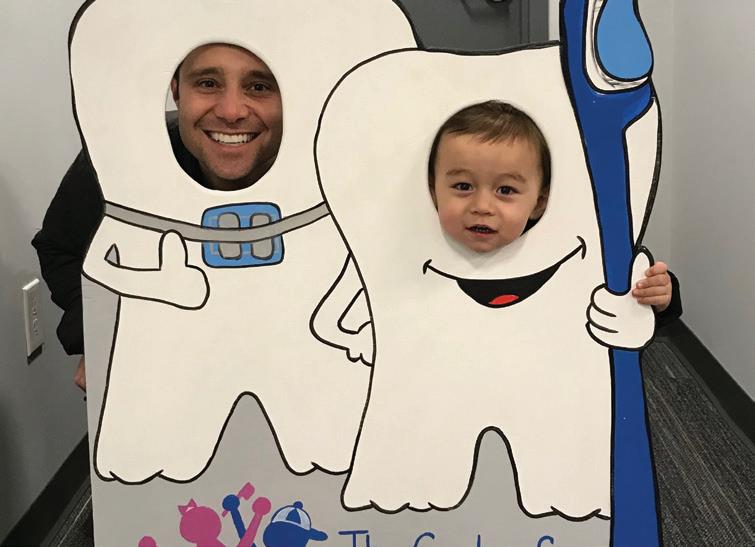
Orthodontics
Roger Taylor, DMD
Shahrzad Khorashadi, DMD
Oral Surgery
Evaneet Sidhu, DMD
Michael Gu, DDS


Orthodontist



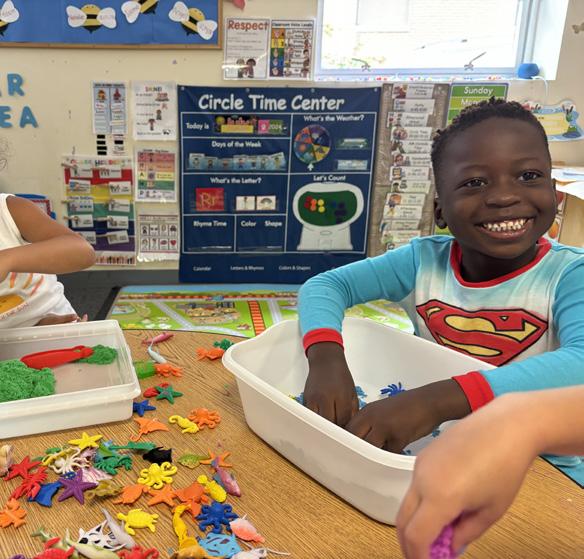

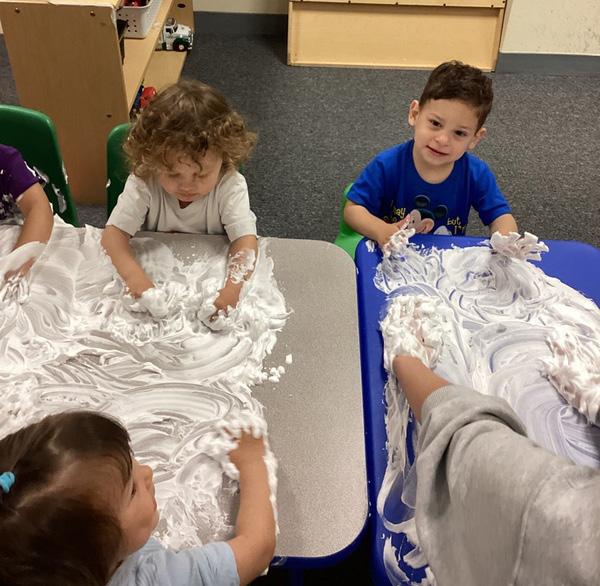
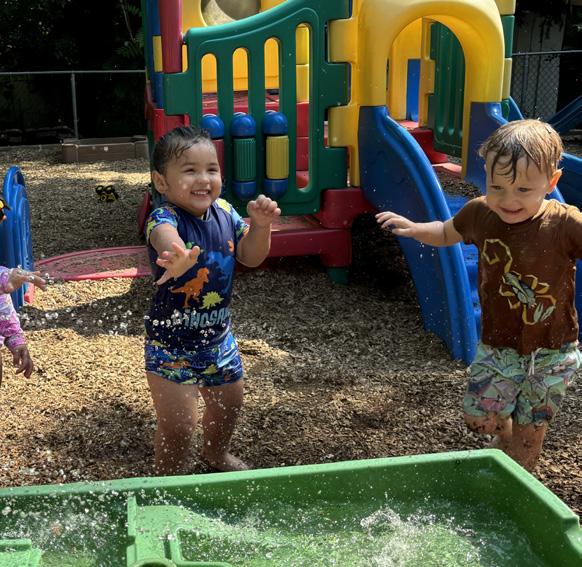

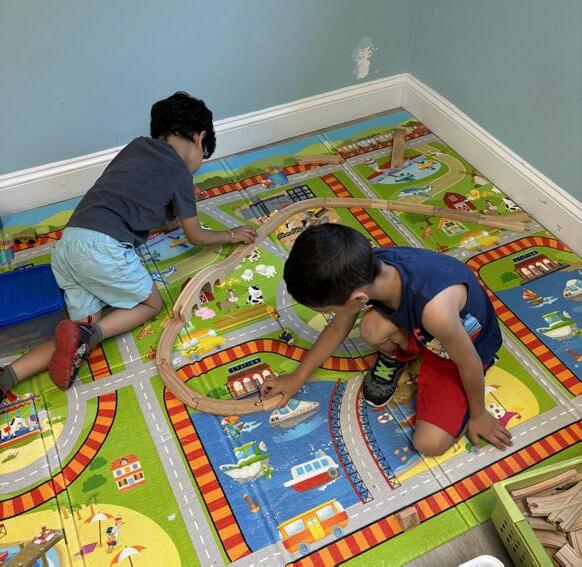

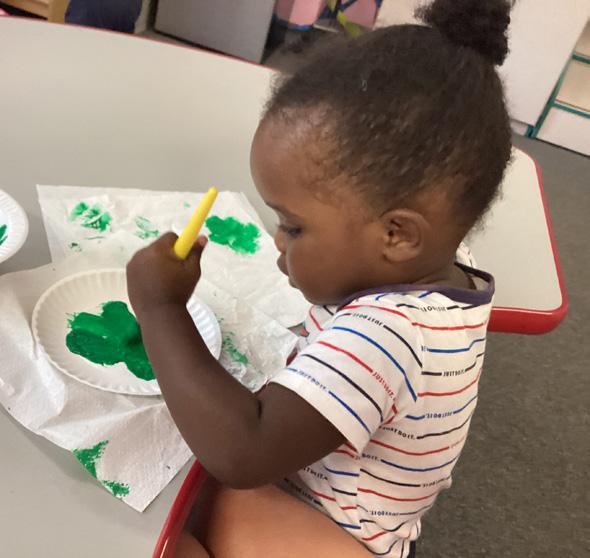
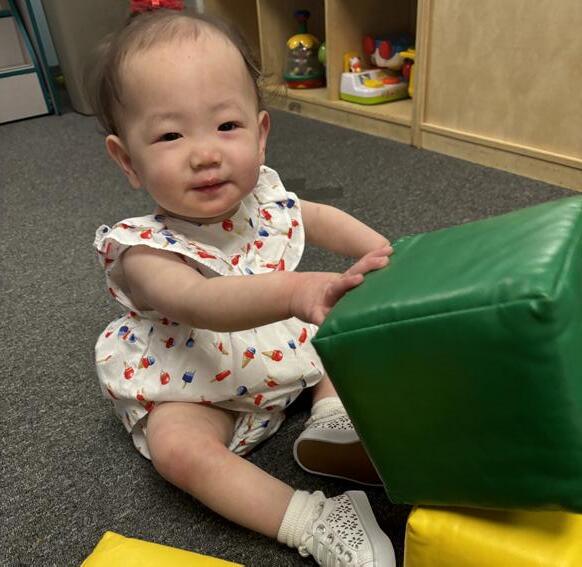



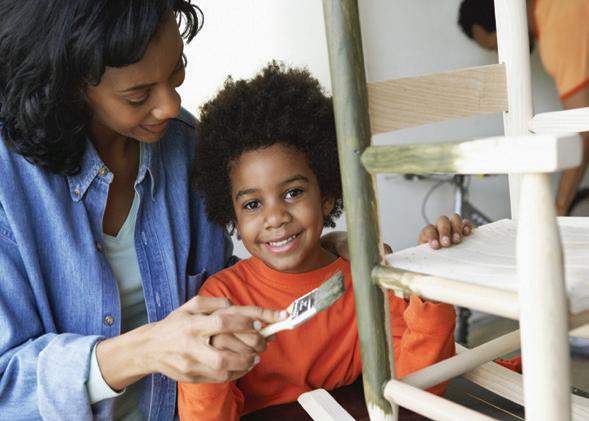



We asked and you told us who your New England favorites are, in droves! Boston Parents received over 200,000 votes from you guys! Awesome! We have your places to vacation, museums to visit, restaurants, schools, medical, special needs and the list goes on and on! Plus, you can find all of the categories online at BostonParentsPaper. com. Mark your calendars! Voting for 2026 Family Favorites starts in Early January.
Pregnancy is often described as a magical time. Expecting parents brainstorm baby names, decorate nurseries, and read every parenting book in sight. Everyone wants to be a good parent—after all, it is one of the most important and difficult jobs there is.
With autism now estimated at 1 in 31 children—and even higher for boys—many mothers-to-be feel pressure to avoid anything that might raise the risk. They skip dental work, delay coloring their hair, give up tuna sandwiches, and of course, abstain from smoking and drinking. So when headlines warn that acetaminophen use during pregnancy “causes” autism, the fear can feel overwhelming.
But this claim grossly oversimplifies one of the most complex neurological conditions. Yes, some studies suggest a correlation between acetaminophen use in pregnancy and autism. But why was the acetaminophen used in the first place? Fever during pregnancy is already known to increase risks for complications and birth defects. In other words, the underlying condition—not the medication—may be the true culprit. When Harvard and Mount Sinai researchers reviewed the evidence, they found the studies too inconsistent to combine in a meaningful meta-analysis. And the most comprehensive study to date, conducted in Sweden, found no causal link at all.
The truth is, autism is far too complex to be reduced to a single explanation. Genetics play a central role, and changes in diagnostic criteria have also driven rising prevalence rates. Since 2013, a diagnosis no longer requires a language delay; deficits in social communication alone can qualify. Asperger’s

is no longer a separate category—everyone now receives the same autism label, defined by levels of severity from 1 to 3.
If pregnancy fears sometimes oversimplify causes, treatment hopes can oversimplify solutions. Take leucovorin, also known as folinic acid. In oncology, it has a proven role as a “rescue drug,” protecting healthy cells from chemothetapy’s toxic effects by bypassing blocked folate pathways. Some researchers have hypothesized that it could also “rescue” folate metabolism in the brain, especially for children with autism who carry antibodies that block folate transport across the blood–brain barrier. A handful of small studies have suggested promising results in communication and behavior.
But once again, plausibility is not proof. Large, rigorous clinical trials are still lacking. Which brings us to the same recommendation as with any experimental biological treatment: consult your clinical team, and above all, collect robust baseline data before trying the medication. Parents need measurable indicators—whether in language, social interaction, or daily functioning—to know if real improvement is happening, or if hopeful perception is leading the way.
The bottom line: both causes and treatments for autism are complicated. Mothers should not be made to feel guilty over unproven risks, and parents of children with autism should not be pressured into chasing every experimental therapy without evidence. Parenting is hard enough. Families deserve clarity, honesty, and support—not blame and false promises. Y
Mariela Vargas-Irwin, PSYD, BCBA-D, LABA obtained her doctoral degree from Rutgers University and has over 30 years of experience working with children with autism and other developmental disorders
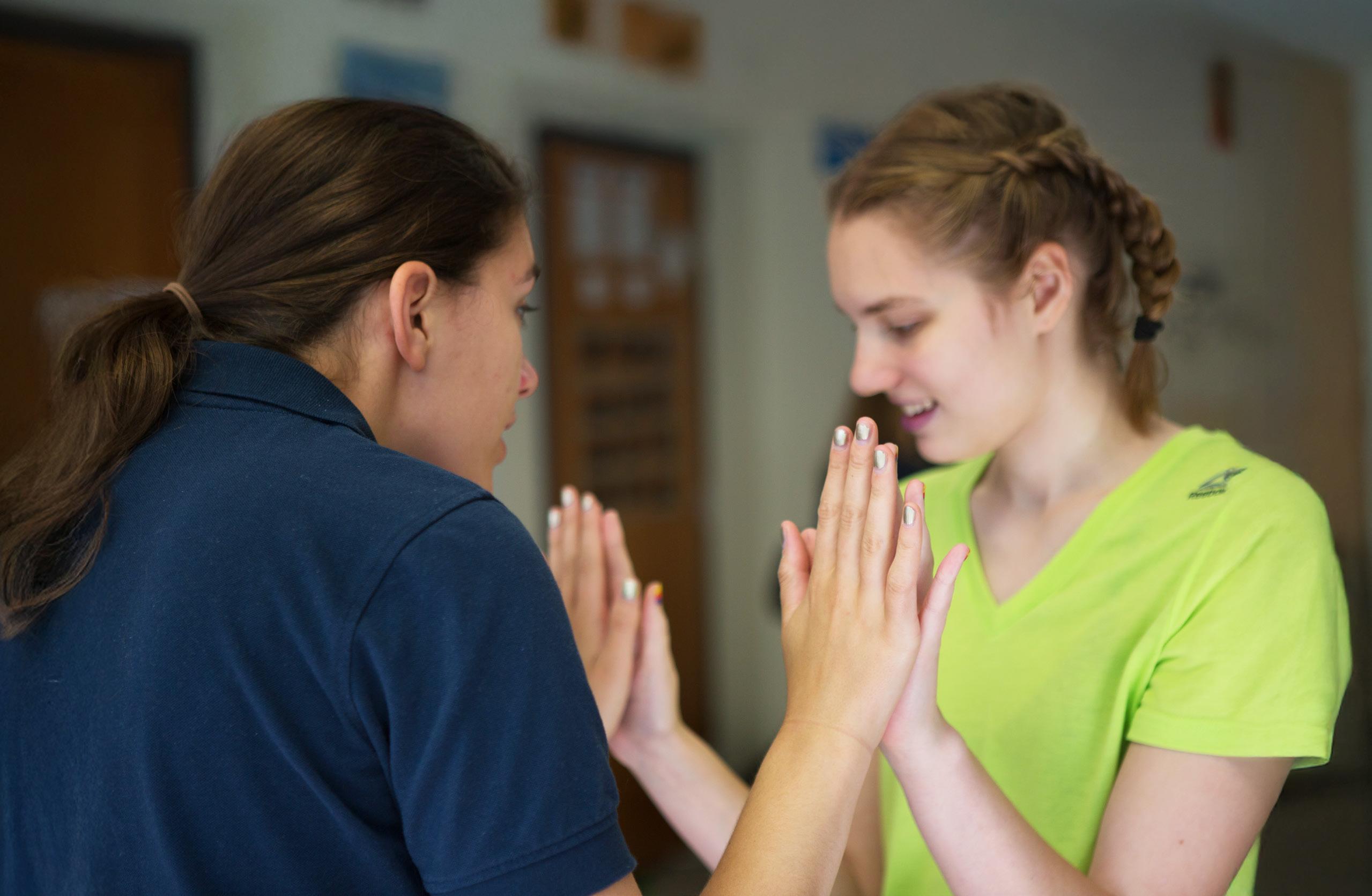
The journey following an autism diagnosis can be overwhelming. With 1 in 31 children now affected, you're not alone. May Institute is here to help.
For over 70 years, May has been a leader in autism care. From our May Centers for Children & Families serving young children to our specialized schools for elementary through high school students across Greater Boston, we provide compassionate, evidence-based care to equip your child with the skills they need for a fulfilling life.

or call
and schedule

What better way to keep track of all the preschool and private school’s admission events than this handy tool! With over 50 entities participating, check out the Online Open House & Admissions Calendar on BostonParentsPaper.com. Look for the School Open Houses button on the main header bar and tap. Don’t forget to tell them you saw their event on https://bostonparentspaper.com

he kitchen can be one of the most joyful rooms in the home. It is the place for family dinners, birthday celebrations and after school snacks. Unfortunately, the kitchen is also one of the most dangerous rooms of the home due to the occurrence of unintentional injuries. Burns from the stove, scalds, cuts from sharp knives and the accidental ingestion of cleaning supplies are all injuries to be aware of while in the kitchen. With the presence of kids in the home, it is important to be educated on kitchen safety. Thankfully, 90% of injuries can be prevented. Here are some ways to keep kids safe in the kitchen:
Supervision: The best way to prevent kids from being injured in the kitchen is to supervise them, or not let them into the kitchen at all. Make sure you set clear rules like, 1) Do not enter the kitchen without an adult, 2) No touching the stove or oven 3) No touching the knives and 4) Always wash your hands. If your kids would like to help out in the kitchen, some safe tasks they can assist the cook with include: setting the table, rinsing produce, stirring ingredients and shucking corn.
Burn Prevention: When cooking, it’s important to use the burners towards the back of the stove first. Back burners are the safest because they are out of reach of young children. When using pots and pans, be sure to turn the handles inwards to make sure little ones cannot reach and pull the pots or pans off the stove and burn themselves. Never let you kids play with pots and pans for fun, because they may confuse them as toys when they’re hot on the stove. Stove top guards can be used to help prevent kids from touching hot objects.
Poison Prevention: Accidental ingestion is another cause for injury within the kitchen. Most families keep cleaning supplies under the kitchen sink. Cleaning supplies, such as Tide Pods or Clorox, smell good and can come in attractive colors, appearing to be juice or candy that kids want to eat. Be sure to use a child-resistant lock to prevent your child from accessing. If your child has ingested a potentially toxic chemical, always call your local Poison Control Center.
By following these simple steps, you can keep your budding chef safe from injury.


Check out the latest edition of Your Child with Special Needs which is filled with information on how to help kids with special needs thrive with valuable local resources and support groups. Available online at www.BostonParentsPaper.com – just click on the cover of Your Child with Special Needs in the “Our Magazines” tab.



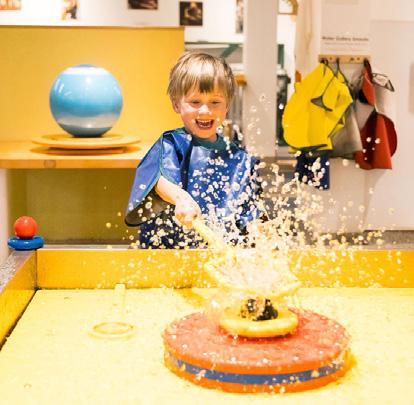
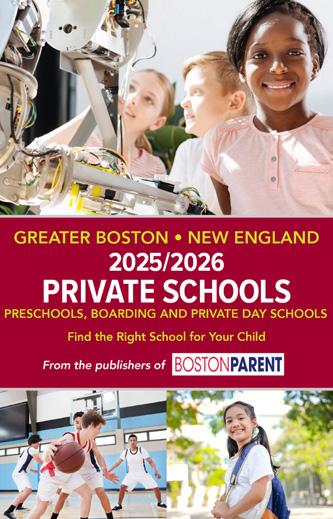



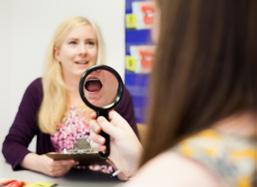

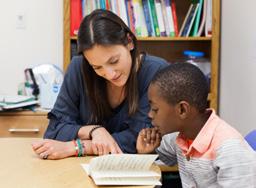




By Sarah Lyons
One of the biggest struggles of any busy parent, especially those parenting multiple children, is finding time to spend quality one-on-one time with each child. This can become even more overwhelming when you feel like you have very little free time. As a mom of six children, I feel the constant pressure of my to-do list combined with a heavy dose of mom-guilt over the desire to spend time with my kids. So how can you have that quality time with your kids even though it feels like you have no time to spare?
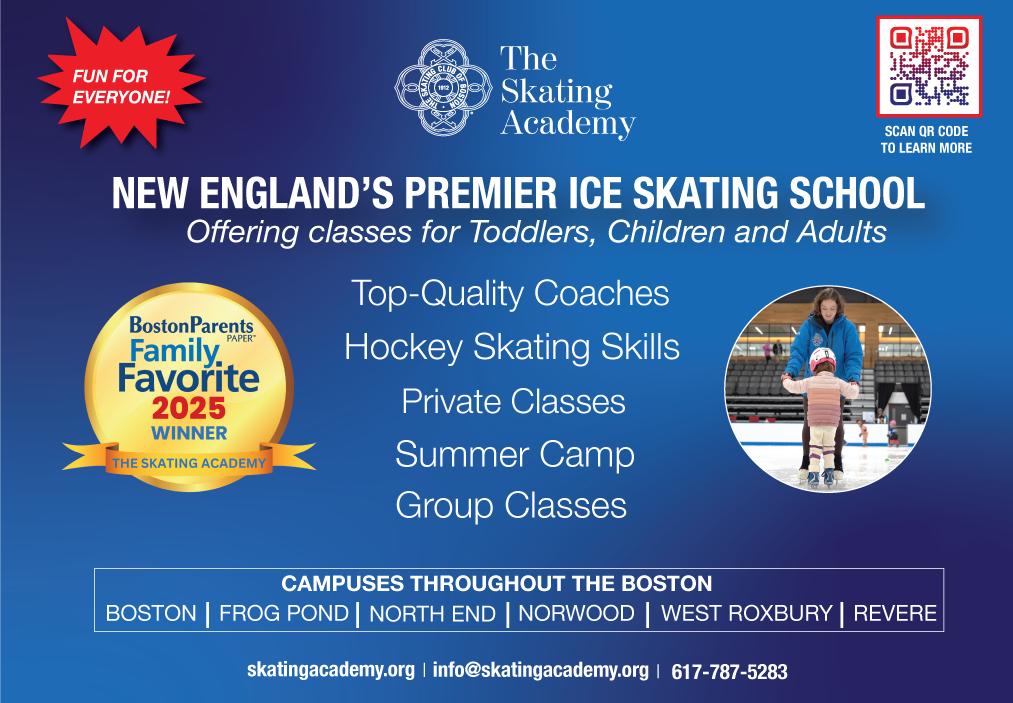
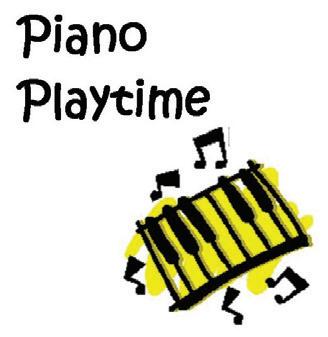
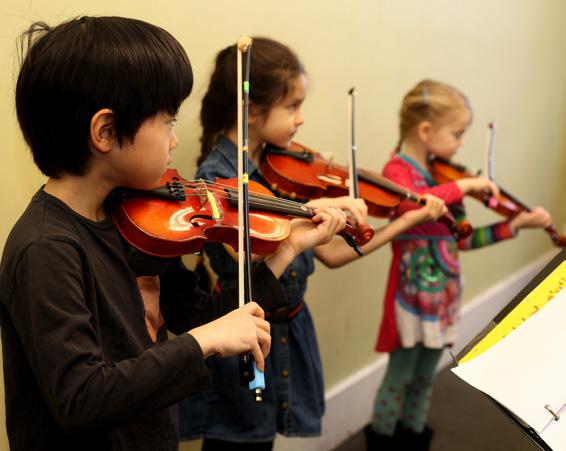
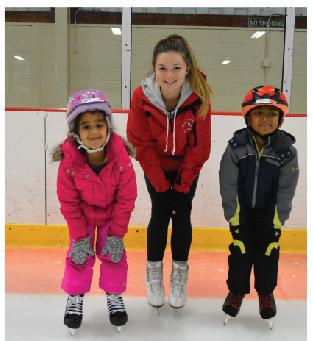











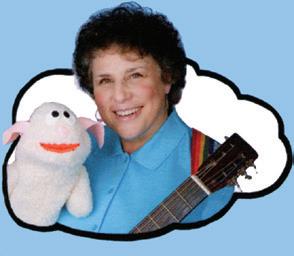



Our smartphones are convenient but they also take up a lot of our free time, both for parents and kids. Set aside an hour or two a week to put the phones in time out and just talk to each other.
One way to create some quality time with your kids is to be intentional about making it a priority. If I happen to have some alone time in the car with one of my kids, I do not let the opportunity for conversation go to waste. If my son wants to talk about Minecraft (again), which is one of my least favorite topics, I choose to listen because it is important to him. I may not fully understand what we are talking about, but he is usually happy to answer my questions and this lets him know that I take an interest in his hobbies. If my daughter lets me know she would like to spend some extra alone time with me, I make it official by putting it on the family calendar. This way it is more likely to actually happen and that time is less likely to get booked with another activity or appointment. Try scheduling one dedicated day, like the third Tuesday of each month, to have some alone time with your children.
While many of my tasks are time-sensitive, there are also quite a few that can wait, such as laundry or dishes. Yes, we don’t want the dishes and dirty clothes piling up so that the family has nothing to wear or eat off of, but on most occasions,
it can wait an hour or even a day before they have to be washed. Your child will notice what you think is most important - them! Plus, there is the bonus of getting to put off your housework a little longer. If your chores truly cannot wait, ask your child to help put in a load of laundry and then ask if he would like to play a game, read a book, watch a movie, or bake some cookies while the washer runs.
Some families may also find it helpful to make mealtimes a no-phone zone. This is a great way to spur conversation without distractions. If you find your conversations in a lull, try a would you rather question. For example, “Would you rather never have homework or never have to eat food you didn’t like? Why?” Not only will these get conversation flowing, you might also find out some things you didn’t know about your child.
If setting aside chores and errands isn’t an option, ask your child to come alongside as a helper. My kids have helped me cook, do laundry, run errands, match socks, and rake leaves. Often our best conversations are while we are working on a project together. Not only will you get your chores done and spend time with your child, you are also showing them the value of hard work without even trying.
What we spend our time doing shows our children what we value. With some extra effort we can sneak in moments of quality time with our children that add up to a strong relationship. When we are intentional and make our kids a priority, it will not go unnoticed by them. Y Sarah Lyons is a mom of six children, including eight year old triplets. She lives in Kansas City with her family.
One way to create some quality time with your kids is to be intentional about making it a priority.

Receive camp information and learn about more than 75 day and overnight camps as well as summer programs for all ages and interests.
Click here to register and receive access to regularly updated online camp expo materials



By Sarah Lyons
When we think of Thanksgiving Day, delicious food, football, and getting together with family and friends come to mind. The original purpose of Thanksgiving was to show gratitude and give thanks for a bountiful harvest. Now as we celebrate Thanksgiving it is easy to get caught up in distractions like football games, Black Friday shopping, and the quest for the perfect meal and table settings. We tend to forget all about stopping to give thanks for all of our blessings. Make this Thanksgiving meaningful by starting some family traditions that help everyone in the family stop and count their blessings.
Make this Thanksgiving meaningful by starting some family traditions that help everyone in the family stop and count their blessings.
Make a list
One way to remember your blessings is to acknowledge them. Go around the dinner table and have each person name something they are thankful for. This could be done each night at dinner during the month of November or for
Continued on page 16


<<< Continued from page 14
the week leading up to it. On Thanksgiving Day, have all your guests do the same. It is heartwarming to give thanks for the blessings we have. Looking for a more concrete idea? Have everyone write down or draw a picture of what they are thankful for. After everyone shares their paper, place them all in a three-ring binder. Each year add to the binder and reflect on all the blessings of the past. “We do a Thankful Tree throughout November.” says Stephanie Loux, mom of three. “I draw a tree to tape on our pantry door and the kids cut out leaves from construction paper. Each night we all write one thing we are thankful for on a leaf and tape it to the tree. Kids can be grateful for a variety of things from butterflies to Elsa. We look forward to this tradition every year.”
Christmas is right around the corner and many kids will receive new items as gifts. In anticipation, have the kids help clean their closets and toy boxes and set aside items they no longer need. Donate gently used toys and clothing to a local charity or family in need. This process will not only reduce clutter around the house but it will teach the kid to be generous to those that are less fortunate than they are. In the same spirit, talk with your kids about how some people may not have coats, hats, and gloves to keep them warm during the cold winter
months. As a family, collect hats, coats, scarves, gloves, and blankets to donate to a homeless shelter. Gather items you may have in your home that you are no longer using and ask friends and family to do the same. Go to the store and have the kids pick out items they would like to give to another child their age.
Have each family member take a break from a luxury they enjoy. Ideas may include dessert, manicures, coffee, soda, or a favorite video game or TV show. This exercise reminds us to be grateful for the luxuries that are otherwise taken for granted.
Set aside time to do a service project as a family. Ideas may include cleaning up trash in a local park, rake a neighbor’s leaves, working at a food pantry, purchasing items for a Thanksgiving meal and delivering them to a family in need, organizing a book drive for a local children’s hospital, or adopting a family for the holidays. When you volunteer as a family, kids see you helping others and are more likely to continue serving as an adult. Serving in an area that your children are already interested in helps create excitement for the project. If your child loves singing, go caroling at a




Thanksgiving dinner preparation is a lot of work. Having the kids help prepare dinner and clean up for company will teach them how much work really goes into preparing a large meal like Thanksgiving dinner.
senior center. If your child loves to play at the park, plant flowers or pick up litter to help maintain its beauty. If they love crafts, make blankets for a homeless shelter. There are many possibilities for children of any age and skill level.
Encourage the kids to think of friends and neighbors who may not have anywhere to go on Thanksgiving and invite them to come over for dinner. Discuss the importance of hospitality and welcoming others into your home. If you are not hosting Thanksgiving, consider hosting a brunch the following day and opening your home to friends and family.
Thanksgiving dinner preparation is a lot of work. Having the kids help prepare dinner and clean up for company will teach them how much work really goes into preparing a large meal like Thanksgiving dinner. This will teach them appreciation for the work that goes into a holiday meal and also encourages a good work ethic at a young age.
This Thanksgiving, take time to remember what Thanksgiving really means. It’s not about Black Friday deals or endless
football. It’s about giving thanks for what we have, sharing with and serving others, and celebrating with those we love.
Sarah Lyons is a busy mom of six kids, including seven-year-old triplets. Her family enjoys doing service projects together.

Organize a collection drive
Ideas include coats, hats and gloves, blankets, toys, or clothing to donate to those in need
Fill the food pantry
Take the kids shopping for favorite non-perishable food items and/or go door to door in your neighborhood to collect items to donate to a local food pantry
Offer to rake leaves or shovel snow for a neighbor or friend
Operation Christmas Child
Fill shoeboxes to send to children overseas. Check www.samaritanspurse.org for more information and collection dates and locations
Bake cookies for friends, neighbors, or take them to the local police or fire station
Send care packages, cards, and letters to soldiers overseas
Draw pictures for seniors and deliver to an assisted living center
Volunteer at an animal shelter
Plant flowers or trees
Clean up the school grounds or a local park
Have a lemonade stand or garage sale and donate proceeds to your favorite charity Y

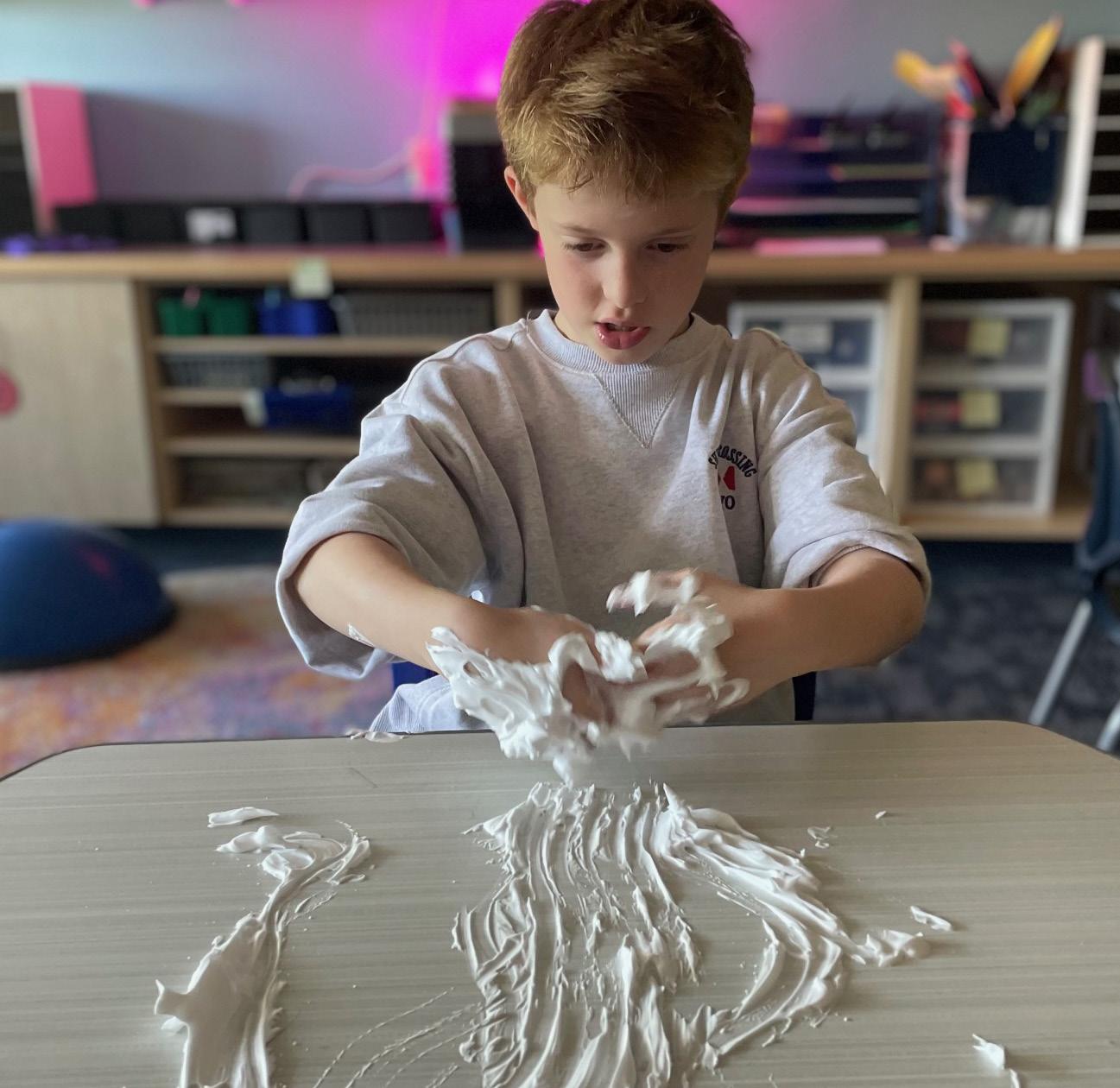
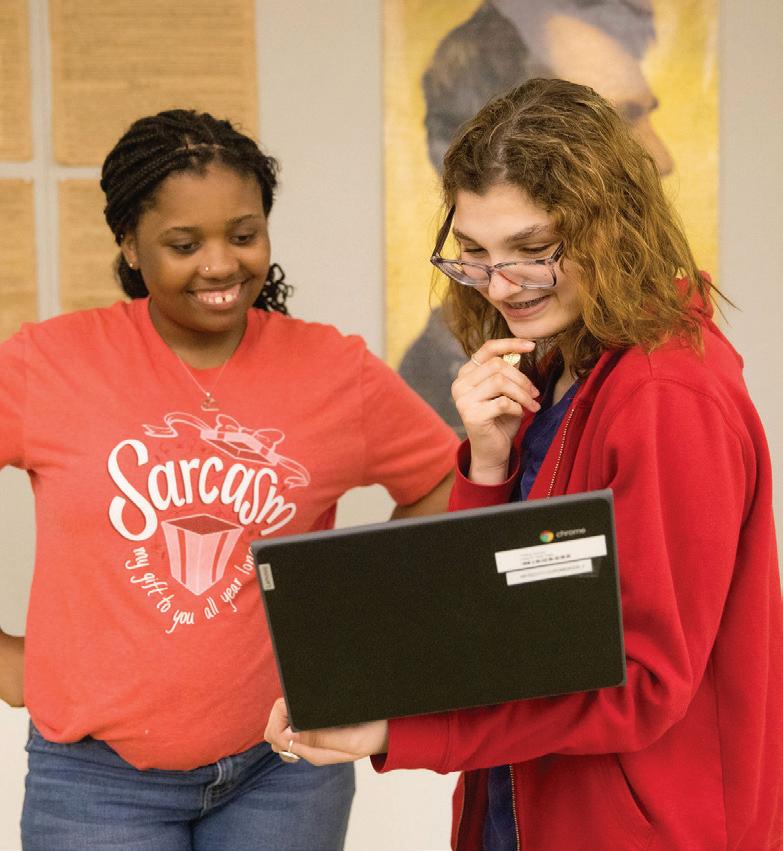
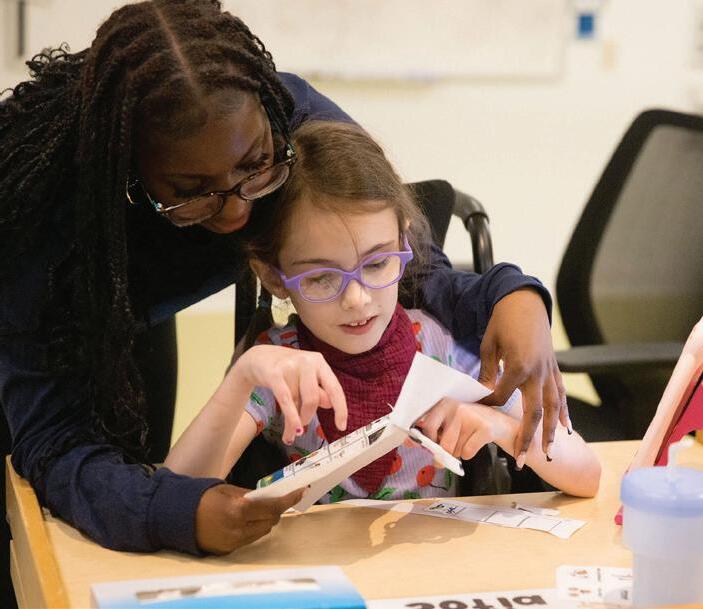

Ū Rolling admissions
Ū Comprehensive curriculum
Ū Collaborative Care Model, an integrated approach to ensure high quality academic and clinical services
Ū Consulting services that provide school districts with technology, student assessments and professional development
Ū Monthly information sessions and private tours available

THE PUBLISHERS OF BOSTON PARENTS MAGAZINE TAKE THE GUESSWORK OUT OF FINDING THE RIGHT PRIVATE SCHOOL FOR YOUR CHILD, FROM START TO FINISH. The following articles are excerpts from the 2025/26 Annual Private School Guide, covering “Why Consider a Private School” and “Private School Search Timeline” from the award-winning guide. The complete Annual Private School Guide leads parents chronologically along the school-selection path, beginning with the value of private education and how to start the process of selecting a school with an emphasis on the all-important application process, including interviewing, testing, and essay writing as well as the ins-and-outs of financial assistance. Also included are school profiles and a comprehensive list of regional private schools, listed by city. Your road to the ideal school just got simpler! Access your copy today of this free resource at BostonParentsPaper.com and tap on “Our Magazines” button.
Many parents feel that their children will thrive better in what they believe is a smaller, safer environment with more room for personal attention. While public schools must follow a curriculum heavily influenced by state standards, private schools have more freedom to customize lessons to students’ individual ways of learning.
PRIVATE SCHOOLS can point to low student-teacher ratios, freedom from state standards and testing, and lots of extras like music, foreign languages, travel opportunities and art that can be underfunded in public schools. Private schools are often wellequipped with current educational technology to facilitate in class and virtual instruction. Rest assured, promise school experts, there is a school out there to suit every child.
While each school follows its own schedule, here is a typical admissions timeline. Many schools are now offering both in-person and virtual admission events.
(Of the year before you want your child to attend)
• Define your ideal school
• Find schools that match your child’s and family’s needs
• Research and ask questions of schools on your preliminary list
• Browse schools’ websites and look books to learn more about their programs and philosophies
• Request admissions and financial assistance material by phone or online
• Review admissions materials to determine which schools to visit
• Create a calendar of pertinent admission and financial assistance deadlines for the schools to which you are considering applying
• Ask elementary schools about their test schedules and make appointments
• Register for any standardized tests required for admission
• Review the test websites to learn about procedures and test dates, see sample questions, and purchase test-preparation books
• Contact schools to schedule individual tours, class visits, interviews, and “shadow days”
• Continue scheduling tours, interviews, class visits, and standardized or school-based tests
• Visit schools, virtually if necessary, during open house events, attend information sessions, and take tours
• Finalize the list of schools to which you will apply
• Take required standardized admission tests
• Continue scheduling tours, interviews, class visits, and preparing and taking standardized or school-based tests
• Watch for open house events you may want to attend
• Request teacher recommendations from your child’s current school
• Start working on applications, tuition assistance forms, student questionnaires, and essays
• Watch for any open house or school events of interest
• Request transcripts at the end of your child’s first semester
• Complete any remaining applications, questionnaires, etc. Some application materials are due as early as December.

• Pay attention to deadlines: Most applications are due in January or February, along with test scores, references, transcripts, and financial assistance forms
• For schools with February admissions deadline turn in applications.
• Visit schools applied to again or have your child participate in a student shadow day if you haven’t already
• Watch for school decisions starting in mid-March
• Watch for financial assistance decisions
• Decide which school your child will attend and let the school know
• Sign and return enrollment contracts and send deposits
• Attend events and activities for new parents and students
• Get to know other families in the school
• Sign up for fall sports and clubs Y
There are two primary categories of private schools— independent schools and parochial schools.
INDEPENDENT SCHOOLS are defined as nonprofit private schools with their own governing board of trustees. While most people commonly refer to independent schools as private, lumping them in with parochial and for-profit schools, they are distinct because they are nonprofit and self-governing.
PAROCHIAL SCHOOLS, where tuition is typically one-third that of independent schools, offer traditional instruction and have solid reputations. Families who are “in-parish,” that is, who live within the schools’ official parish boundaries or volunteer and participate regularly in the parish, get first priority. Otherwise, the application procedures are similar to independent schools.
When considering private school education, think about these benefits:
High academic standards. Private schools nurture intellectual curiosity, stimulate personal growth, and encourage critical thinking. A larger percentage of students at private schools are enrolled in advanced courses than in public.
Small classes and individual attention. Private schools have low student-teacher ratios that encourage close connections with students. The median ratio in schools that are members of the National Association of Independent Schools in 2024/25 was 8.1 students to 1 teacher.
Excellent teachers. Educators usually teach in their areas of expertise and are passionate about what they do. With more
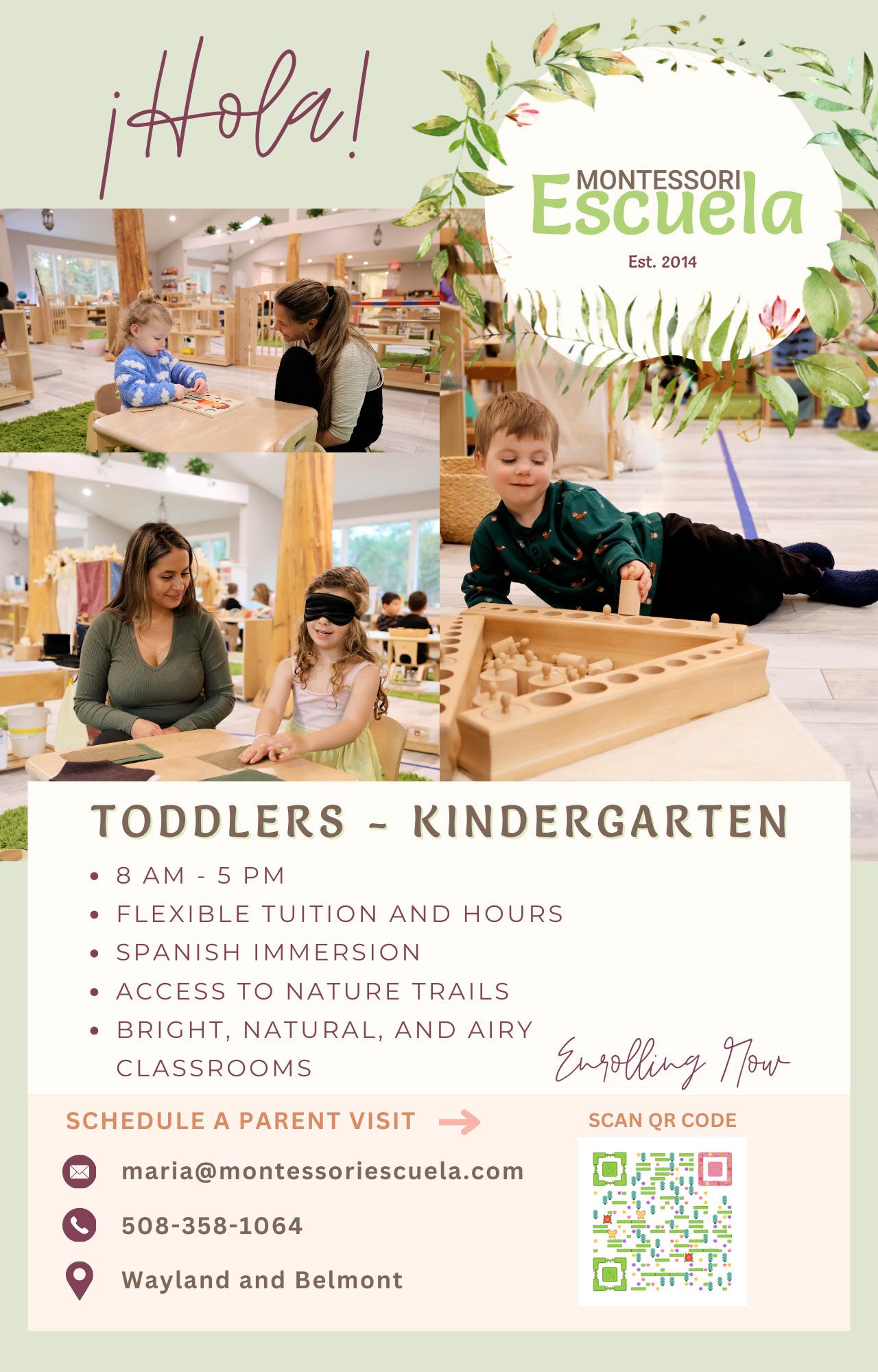
autonomy within the classroom, teachers are able to develop a full understanding of how each student learns and what motivates and inspires each child.
Greater likelihood of a student completing a bachelor’s degree or graduate degree. Independent schools nurture not just students’ intellectual ability and curiosity but also their personal and social growth and civic conscience. Opportunities extend well beyond the classroom to athletic competitions, artistic pursuits, and school leadership experiences.
Education for the whole child. Private schools nurture not just students’ intellectual curiosity but also their personal, social growth and civic purpose. Opportunities extend well beyond the classroom to athletic competitions, artistic pursuits and school leadership offerings.
Inclusiveness. Schools maintain diverse and vibrant student communities and welcome and respect each family. In 2024–25, non-white students were 34.1 percent of total independent school enrollment nationally.
A community of parents who actively participate in their children’s education. Private schools promote regular communication among students, parents, and teachers to ensure everyone is working toward the same goals for the student.
The opportunity to choose a school with a mission. You can select a school whose philosophy, values, and teaching approach is right for your child. Y







































KIDS ARE PEOPLE TODDLER/PRESCHOOL PROGRAM SERVING THE COMMUNITY FOR OVER 45 YEARS! *NEW* TODDLER ROOM NOW ENROLLING
We are centrally located in Kenmore Square. MBTA Buses and Green Line are right outside of our door Walking distance to major hospitals, BU, and the Fenway 5 colleges.
Schedule a tour today!
530 Commonwealth Ave Boston, MA 02215
617-266-0028
kidsarepeopleschool@aol.com








































Melmark New England
461 River Road
Andover • (978) 654-4300 www.melmark.org/newengland
Lesley Ellis School 34 Winter St.
Arlington • (781) 641-5987 www.lesleyellis.org
Montessori Escuela Belmont 628 Trapelo Road Belmont • (508) 358-1064 www.montessoriescuela.com
The Advent School 15 Brimmer Street Boston • (617) 742-0520 www.adventschool.org
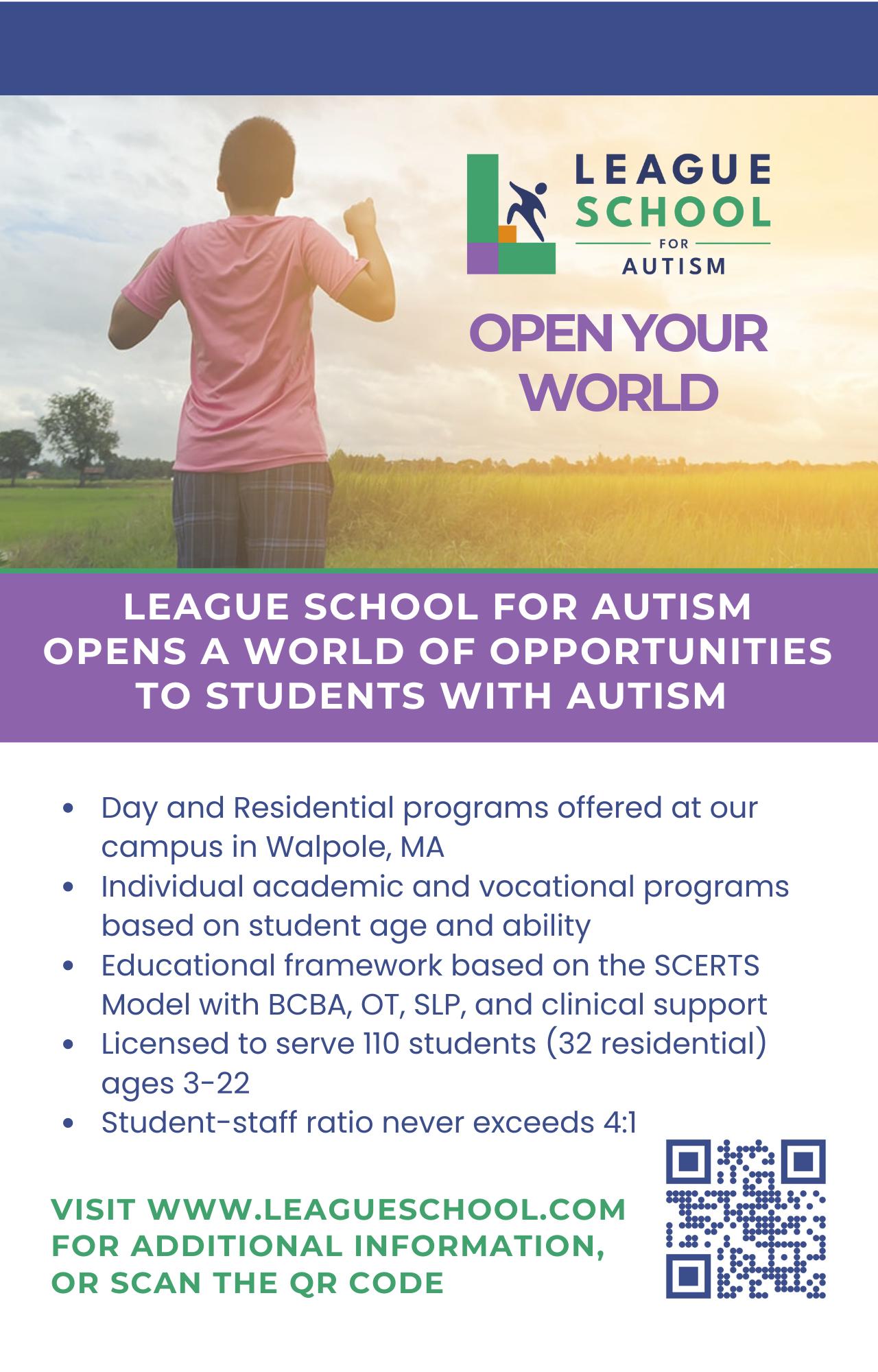
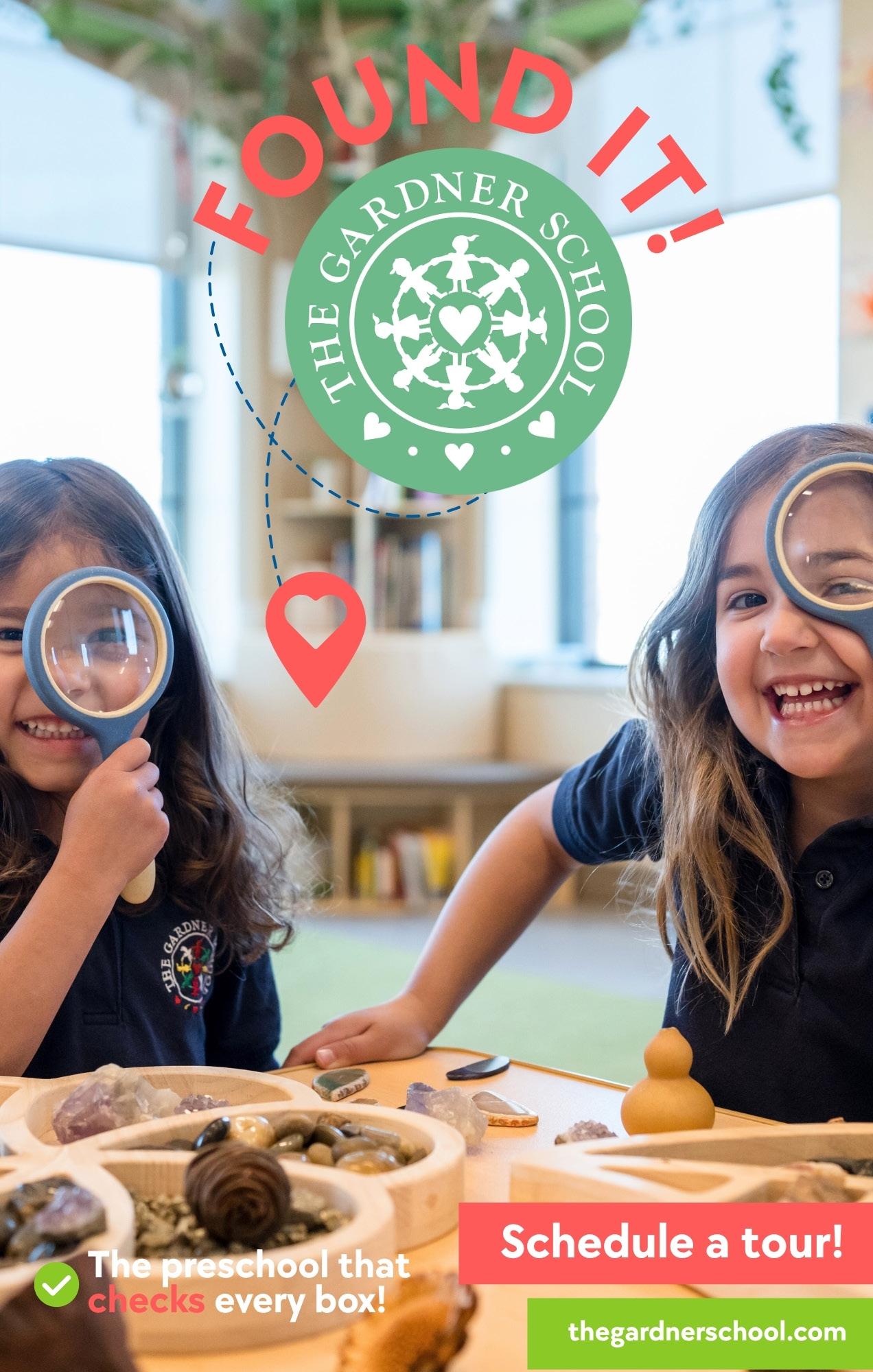
British International School of Boston
416 Pond Street
Boston • (617) 522-2261
www.bisboston.org
Kids Are People School
530 Commonwealth Aveue
Boston • (617) 266-0028
Kingsley Montessori School
30 Fairfield Street
26 Exeter Street
Boston • (617) 226-4927 www.kingsley.org
Park Street School
One Park Street
Boston • (617) 523-7577
www.parkstreetschool.org
The Gardner School
66 Wood Rd
Braintree • (781) 829-3750 www.thegardnerschool.com/schools/braintree
Toddler-12 530
Toddler-Grade 6 7:1 300
Toddler-G6 PS:5/1 225
6 Weeks - Age 5 Varies 227 Independent Call for Details
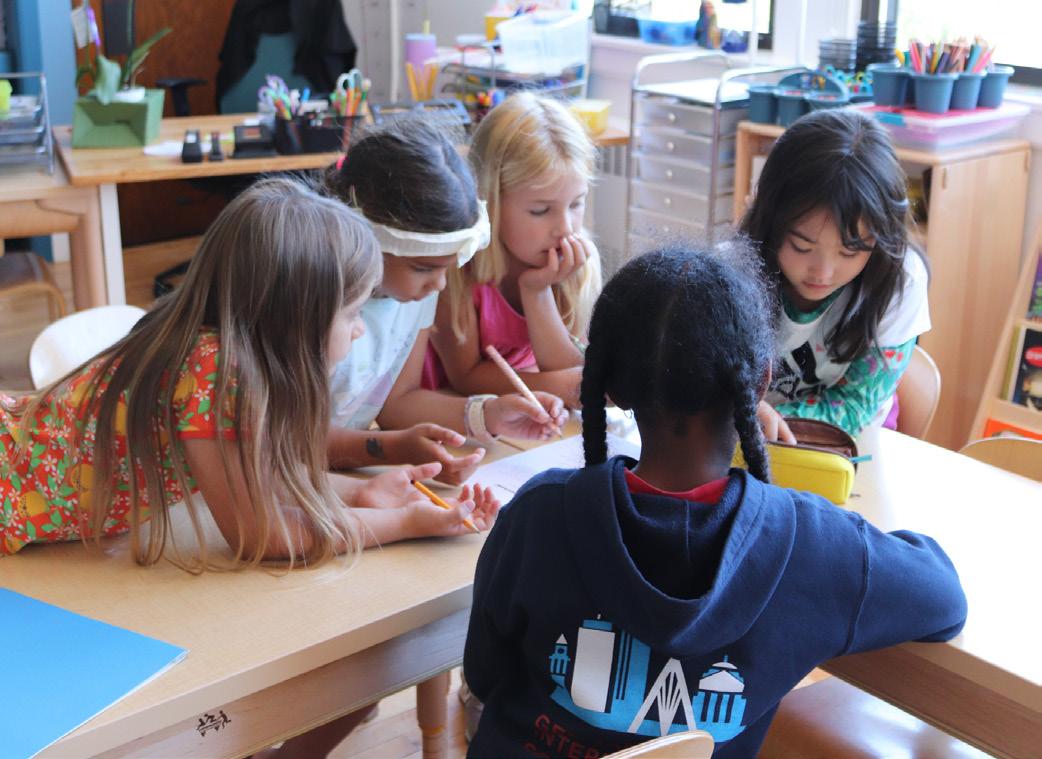
Open a world of opportunity with bilingual education in Boston for children in preschool to grade 12.

New to German? Explore Fast Track, our accelerated program for students entering preK - grade 5 without prior German experience.
Join us for a Lower Campus Open House! Oct. 25, Nov. 22, or Jan. 10 from 10am - noon Questions? Please contact admissions@gisbos.org





Panda Cub Academy
1200 Boylston Street
Brookline • (617) 614-7709 www.pandacubacademy.org
St. Mary of the Assumption School
67 Harvard Street
Brookline • (617) 566-7184 www.stmarys-brookline.org
Mount Hope Christian School
3 McGinnis Drive
Burlington • (781) 272-1014 www.mounthopeschool.org
The Gardner School
109 First Street, Suite 102 Cambridge • (617) 766-5702 www.thegardnerschool.com/schools/cambridge
Brimmer and May School 69 Middlesex Road Chestnut Hill • (617) 566-7462 www.brimmer.org
The Chestnut Hill School 428 Hammond Street Chestnut Hill • (617) 566-4394 www.tchs.org
Dedham Country Day School
90 Sandy Valley Road Dedham • (781) 329-0850 www.dedhamcountryday.org
The Gardner School 780 Washington Street Dedham • (781) 613-2312 www.thegardnerschool.com/schools/dedham
Applewild School
27 Jackson Road
Devens • (978) 342-6053 www.applewild.org
Applewild School
120 Prospect Street
Fitchburg • (978) 342-6053 www.applewild.org
SELA: The International Private School
75 Sgt William B Terry Drive
Hingham • (781) 741-5454
www.suescuela.com
Lexington
Lexington Montessori School
130 Pleasant Street
Lexington • (781) 862-8571 www.lexmontessori.org
Waldorf School of Lexington
739 Massachusetts Avenue
Lexington • (781) 860-5208 www.thewaldorfschool.org
Littleton
Oak Meadow Montessori School
2 Old Pickard Lane
Littleton • (978) 486-9874 www.oakmeadow.org
Millis
Woodside Montessori Academy
350 Village Street
Millis • (508) 376-5320 www.woodsideacademy.com
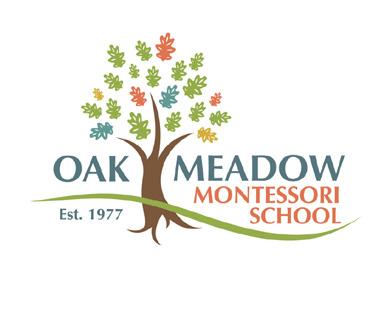

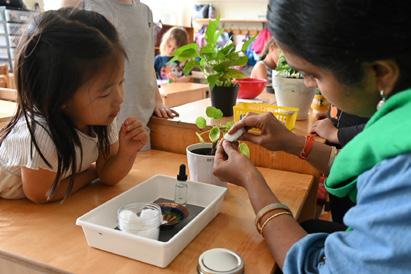
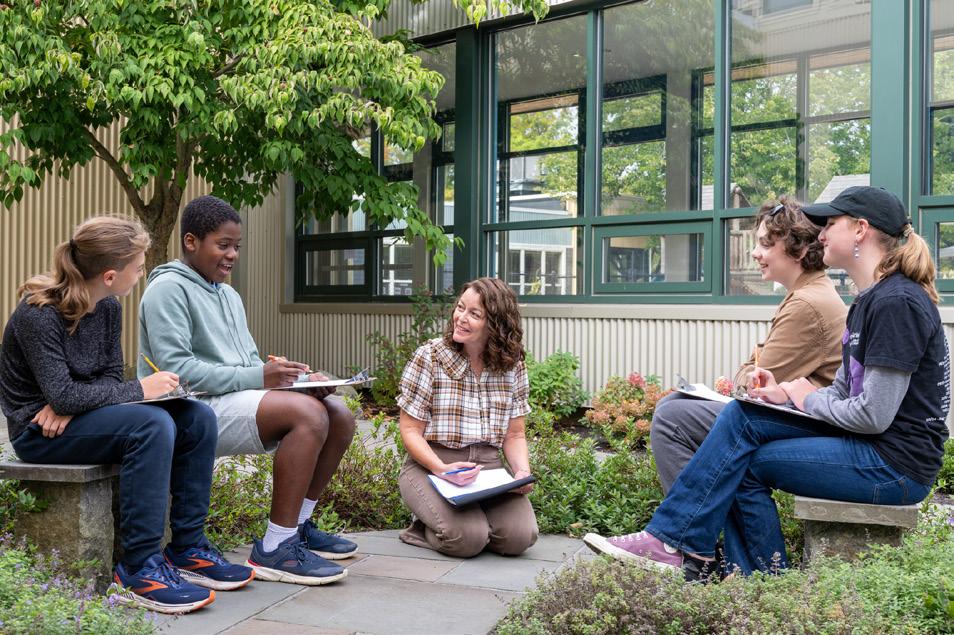
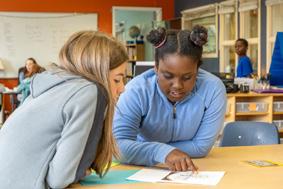




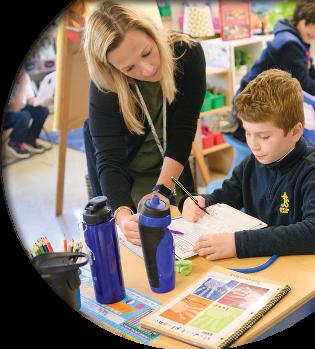

Thacher Montessori School
1425 Blue Hill Avenue
Milton • (617) 361-2522 thacherschool.org
Jackson Walnut Park School 200 Jackson Road
Newton • (617) 202-9772 www.jwpschools.org
Wellan Montessori School 80 Crescent Avenue Newton Centre • (617) 969-4488 www.wellan.org
SELA: The International Private School 137 Washington St Norwell • (781) 741-5454 www.suescuela.com
Norwood Montessori School 462 Walpole Street Norwood • (781) 762-3700 www.norwoodmontessorischool.com
Melmark New England 703 Technology Center Drive Stoughton • (781) 847-1446 www.melmark.org/newengland
League School for Autism
300 Boston Providence Turnpike Walpole • (508) 850-3900 www.leagueschool.org
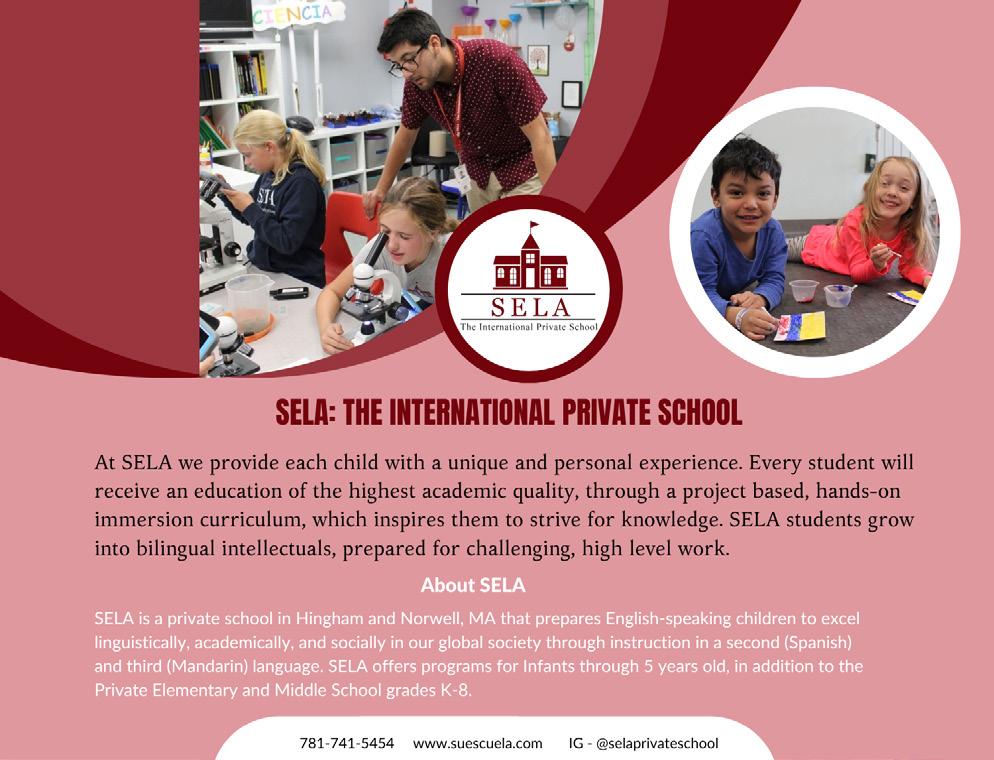
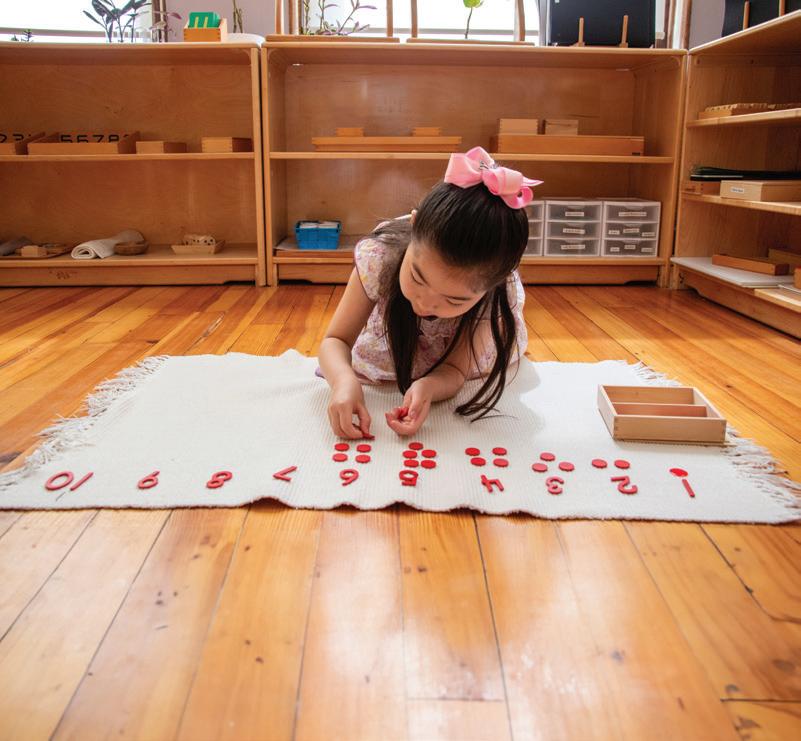
German International School Boston Lower Campus (Preschool - Grade 3) 46 Belmont Street
Watertown • (617) 783-2600 www.gisbos.org PS-12 8:1
Montessori Escuela Wayland
107 Concord Road Wayland • (508) 358-1064 www.montessoriescuela.com
Tenacre Country Day School 78 Benvenue Street Wellesley • (781) 235-2282 www.tenacrecds.org
The Fessenden School
250 Waltham Street West Newton • (617) 630-2300 www.fessenden.org
Holy Name Parish School 535 West Roxbury Parkway West Roxbury • (617) 325-9338 www.holynameparishschool.org
Tender Loving Care Childcare Center
101 River Road
Weston • (781) 703-5088
www.tenderlovingcarechildcarecenters.com
The Gardner School
739 Pleasant Street
Weymouth • (781) 277-0937 www.thegardnerschool.com/schools/weymouth
Tender Loving Care Childcare Center 23 Warren Avenue, Suite 180
Woburn • (781) 281-2983 www.tenderlovingcarechildcarecenters.com
Bancroft School
110 Shore Drive
Worcester • (508) 853-2640 www.bancroftschool.org
AISNE, DAS, MINT, Official German School Abroad (internationally recognized high school diploma)
Boys Only 5:1 544












Melmark New England
461 River Road
Andover • (978) 654-4300 www.melmark.org/newengland
Arlington
Lesley Ellis School
34 Winter St.
Arlington • (781) 641-5987 www.lesleyellis.org
Inventor Academy
54 Middlesex Turnpike
Bedford • (781) 757-0600 www.inventoracademy.us
Montessori Escuela Belmont 628 Trapelo Road
Belmont • (508) 358-1064 www.montessoriescuela.com
The Advent School 15 Brimmer Street
Boston • (617) 742-0520 www.adventschool.org
Boston Trinity Academy 17 Hale Street
Boston • (617) 364-3700 www.bostontrinity.org
British International School of Boston 416 Pond Street
Boston • (617) 522-2261 www.bisboston.org
German International School Boston Upper Campus (Grades 4-12) 57 Holton Street
Boston • (617) 783-2600 www.gisbos.org
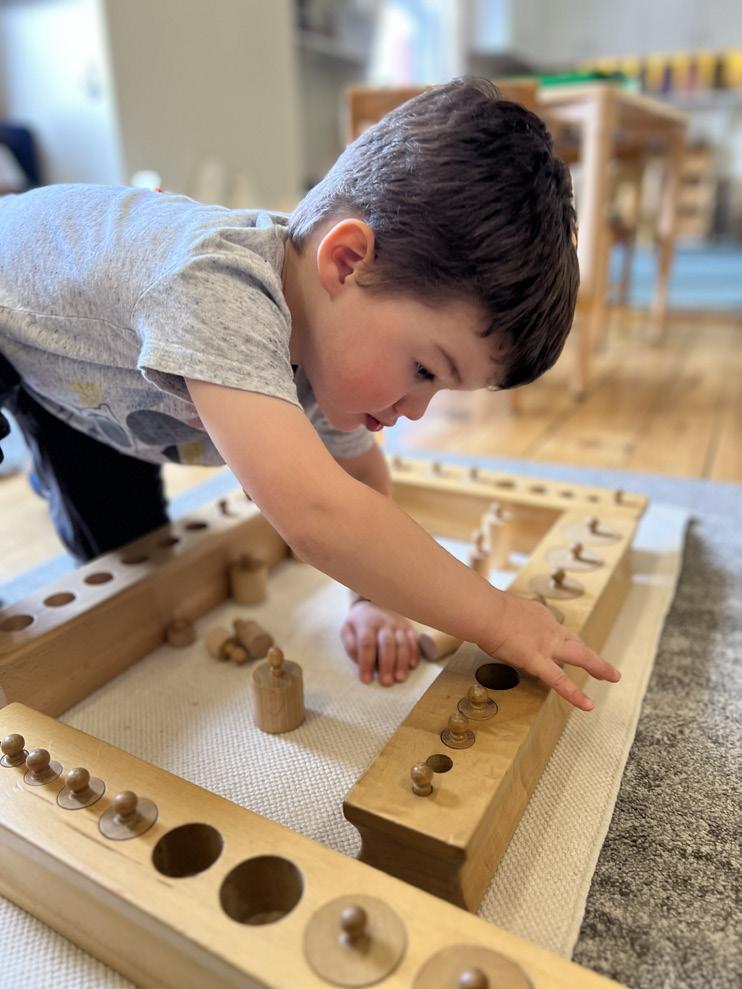

Kingsley Montessori School
30 Fairfield Street 26 Exeter Street
Boston • (617) 226-4927 www.kingsley.org
The Newman School 247 Marlborough Street
Boston • (617) 267-4530 www.newmanboston.org
Park Street School 67 Brimmer Street
Boston • (617) 523-7577 www.parkstreetschool.org
St. Mary of the Assumption School 67 Harvard Street Brookline • (617) 566-7184 www.stmarys-brookline.org


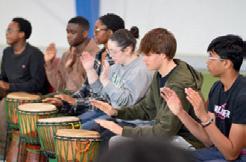
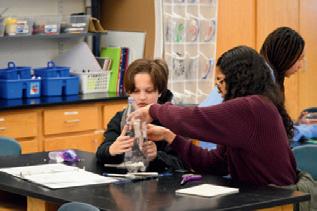

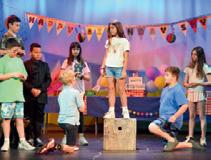
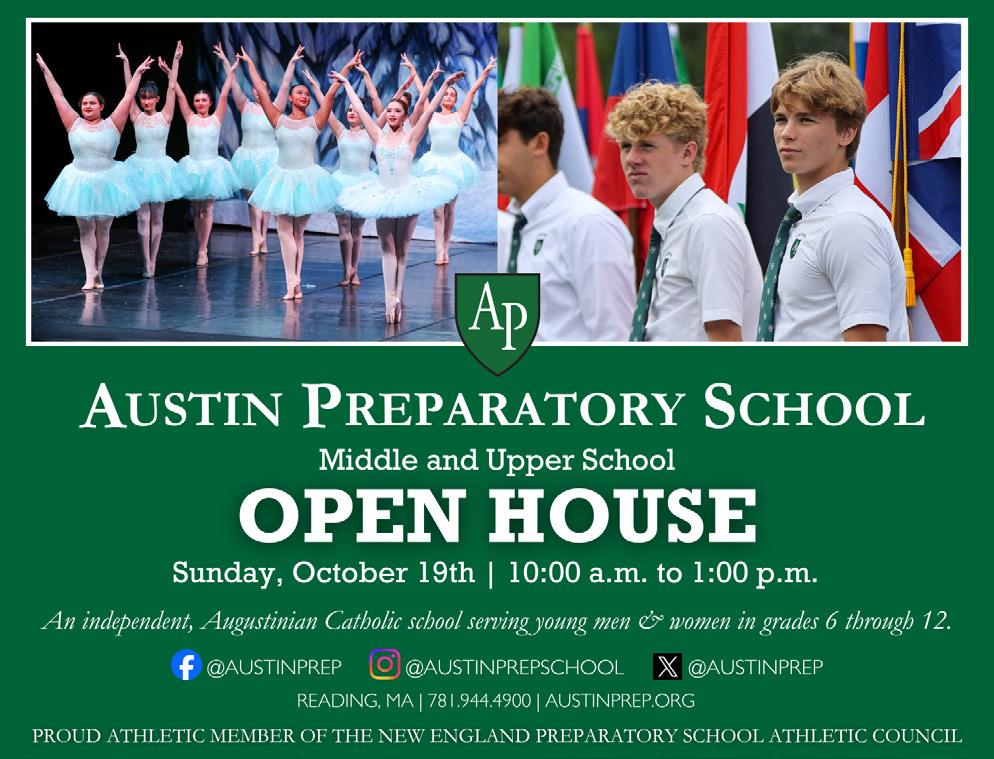
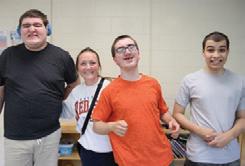
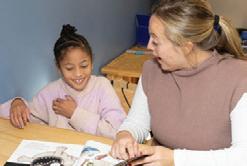
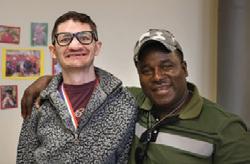
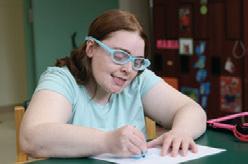

Brimmer and May School
69 Middlesex Road
Chestnut Hill • (617) 566-7462 www.brimmer.org
The Chestnut Hill School
428 Hammond Street
Chestnut Hill • (617) 566-4394 www.tchs.org
Tremont School
575 Virginia Road
Concord • (781) 235-4805 www.tremontschool.org
Dedham Country Day School
90 Sandy Valley Road
Dedham • (781) 329-0850 www.dedhamcountryday.org
Ursuline Academy
85 Lowder Street
Dedham • (781) 493-7726 www.ursulineacademy.net

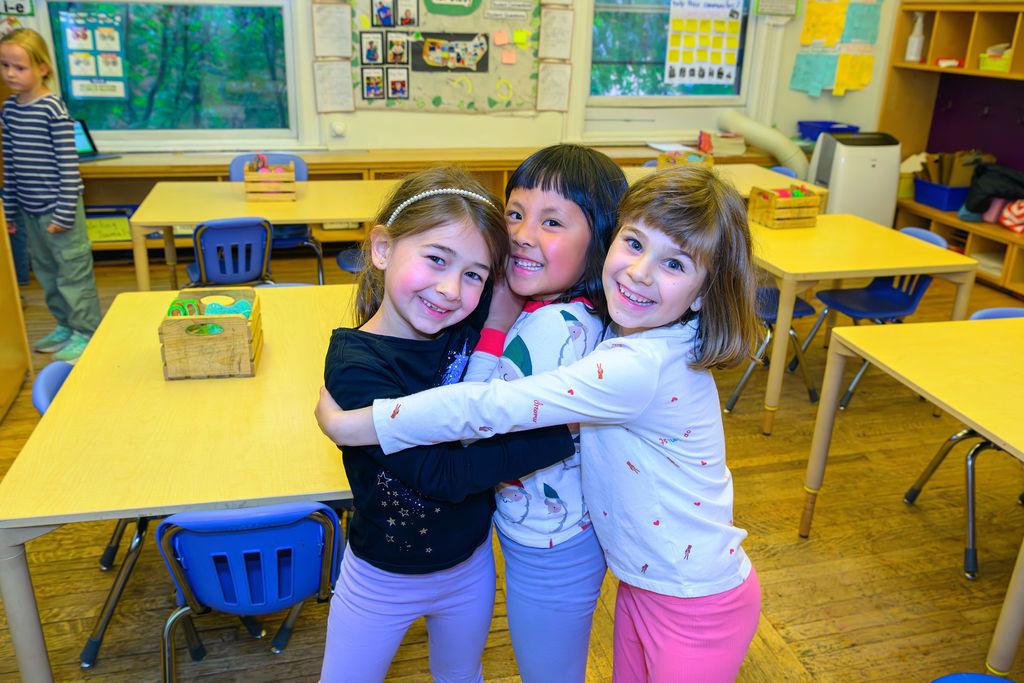

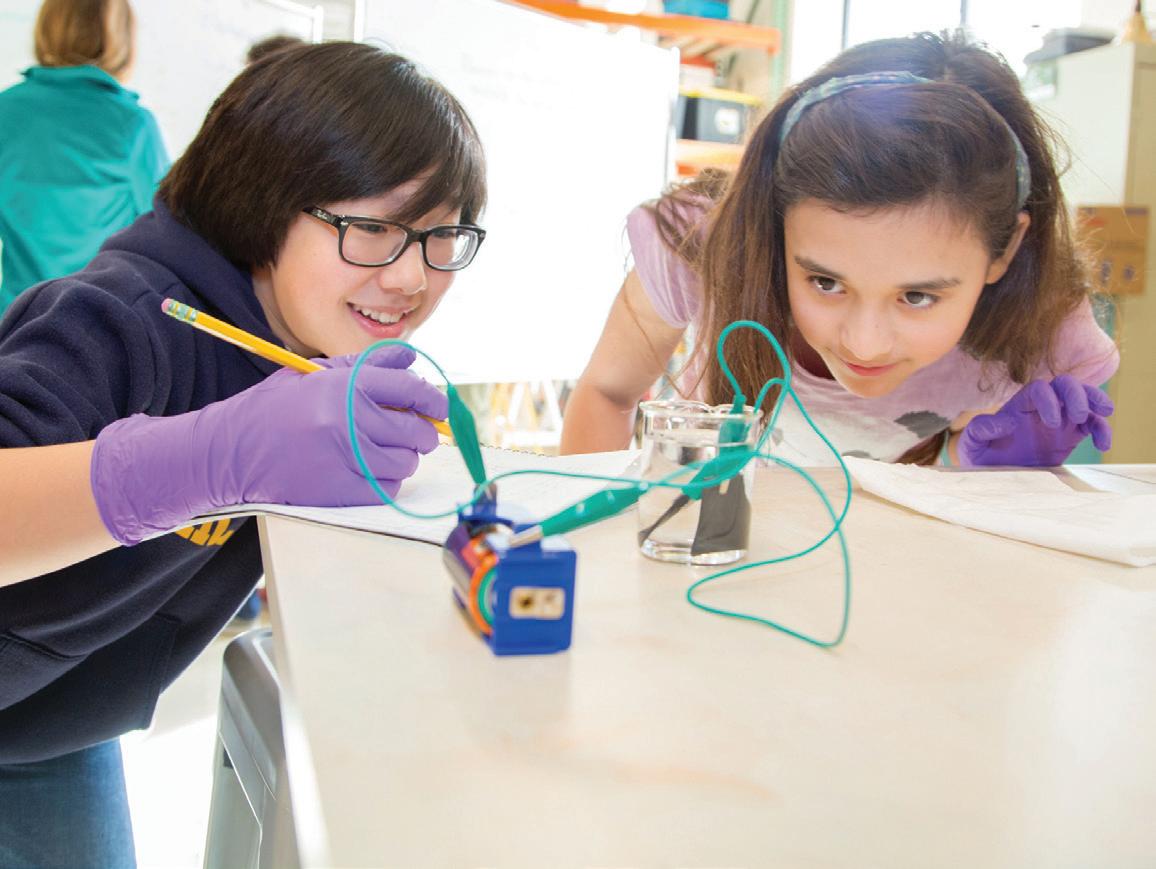
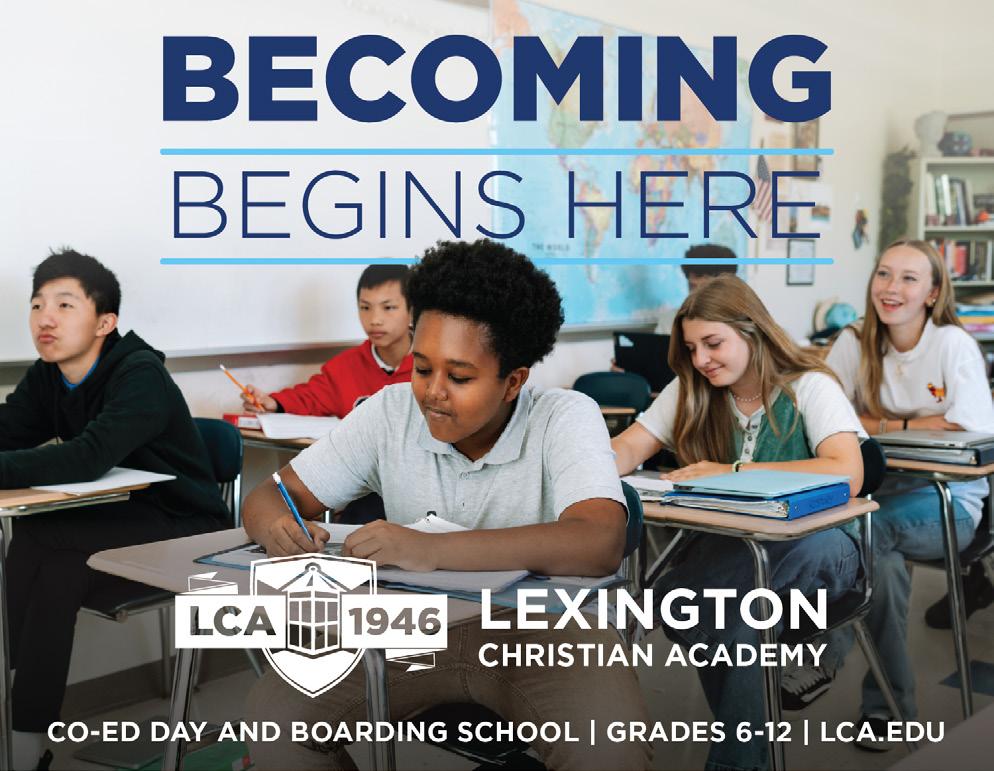
The Bement School
94 Old Main Street
Deerfield • (413) 774-7061 https://bement.org
Riverview School
551 Route 6A
East Sandwich • (508) 888-0489 www.riverviewschool.org
Applewild School
120 Prospect Street
Fitchburg • (978) 342-6053 https://applewild.org
Eagle Hill School
242 Old Petersham Road Hardwick, MA • 413-477-6000 www.eaglehill.school
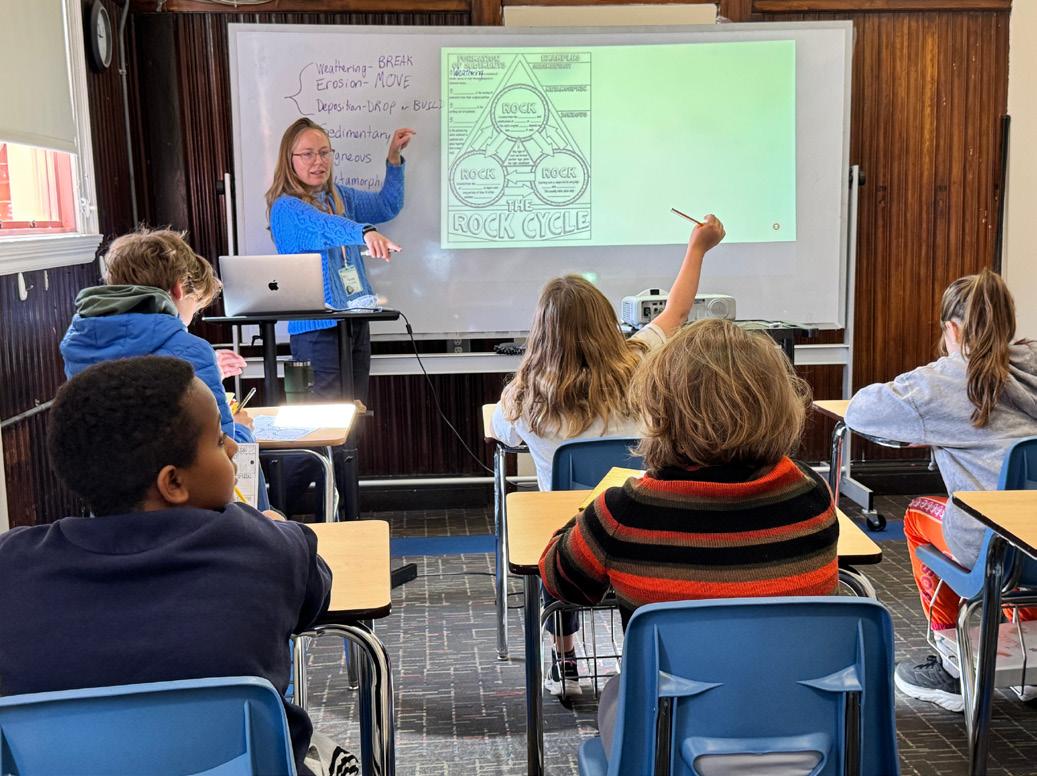
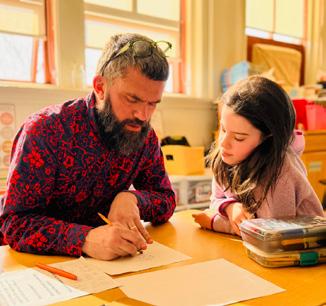

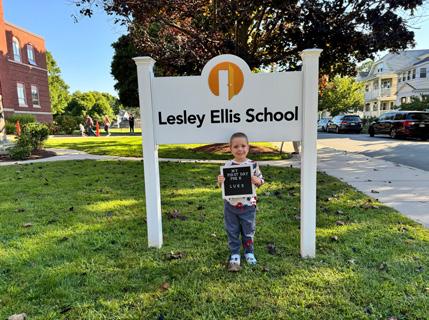
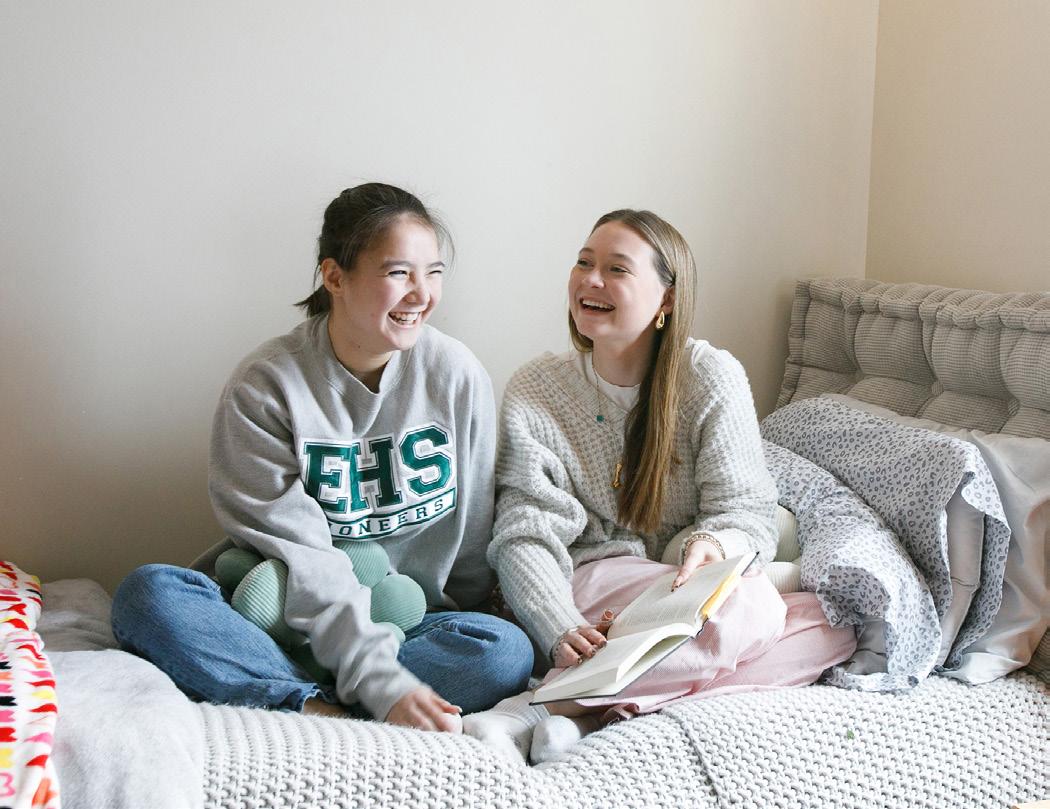

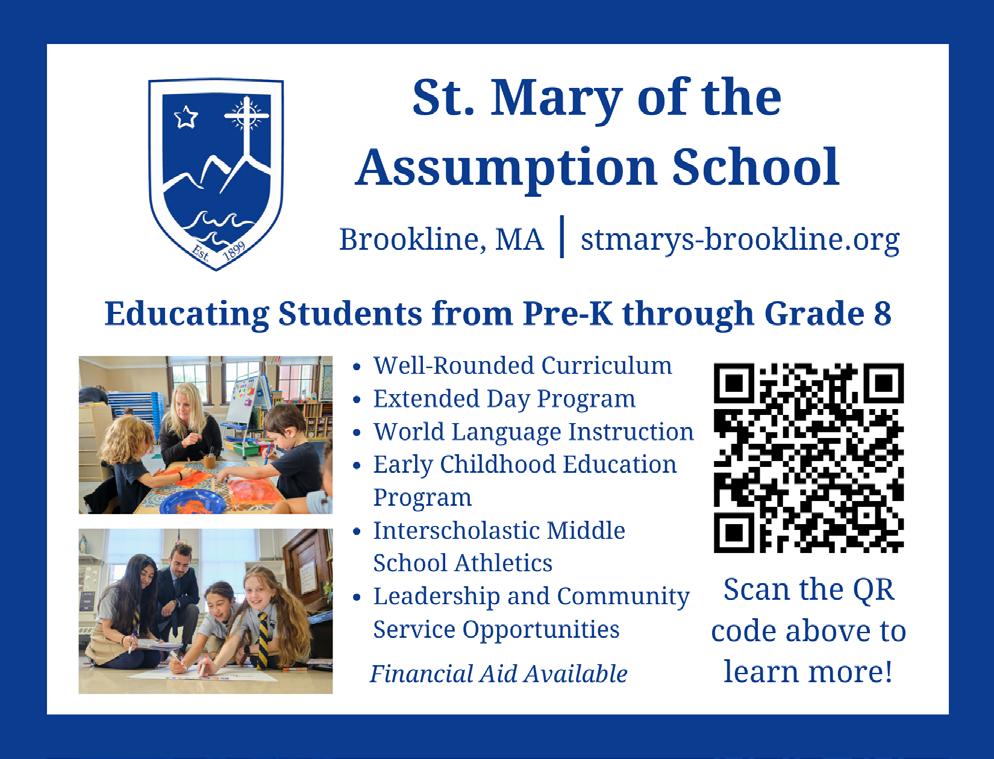
SELA: The International Private School
75 Sgt William B Terry Drive
Hingham • (781) 741-5454 www.suescuela.com
Meridian Academy
54 Brookside Avenue
Jamaica Plain • (617) 277-1118 www.meridianacademy.org
Lexington Christian Academy
48 Bartlett Avenue
Lexington • (781) 862-7850 www.lca.edu
Lexington Montessori School
130 Pleasant Street
Lexington • (781) 862-8571 www.lexmontessori.org
Waldorf School of Lexington
739 Massachusetts Avenue
Lexington • (781) 860-5208 www.thewaldorfschool.org
Oak Meadow Montessori School
2 Old Pickard Lane
Littleton • (978) 486-9874 www.oakmeadow.org
Montrose School
29 North Street Medfield • (508) 359-2423 www.montroseschool.org
Woodside Montessori Academy
350 Village Street Millis • (508) 376-5320 www.woodsideacademy.com
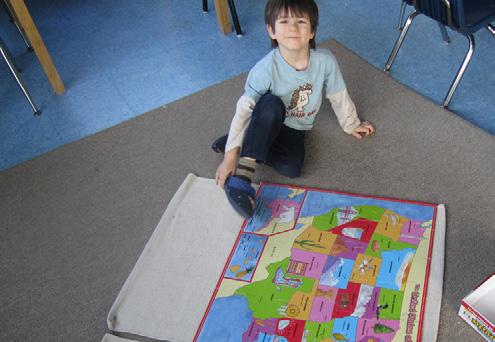
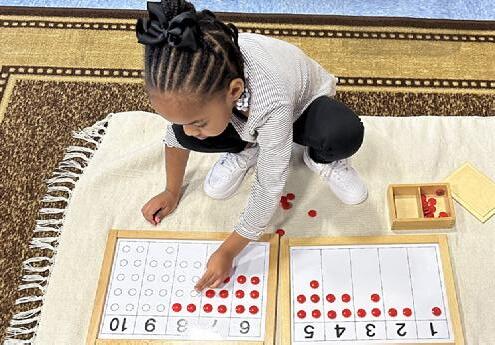
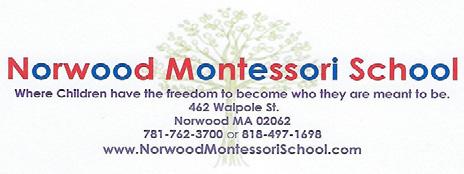

Milton
Thacher Montessori School
1425 Blue Hill Avenue
Milton • (617) 361-2522 thacherschool.org
Walnut Hill School for the Arts
12 Highland Street
Natick • (508) 650-5020 www.walnuthillarts.org
Newton
Jackson Walnut Park School
200 Jackson Road
Newton • (617) 202-9772 www.jwpschools.org
Russian School or Mathematics
200 Wells Avenue
Newton • (855) 628-4855 www.mathschool.com

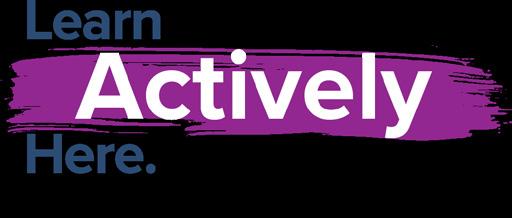
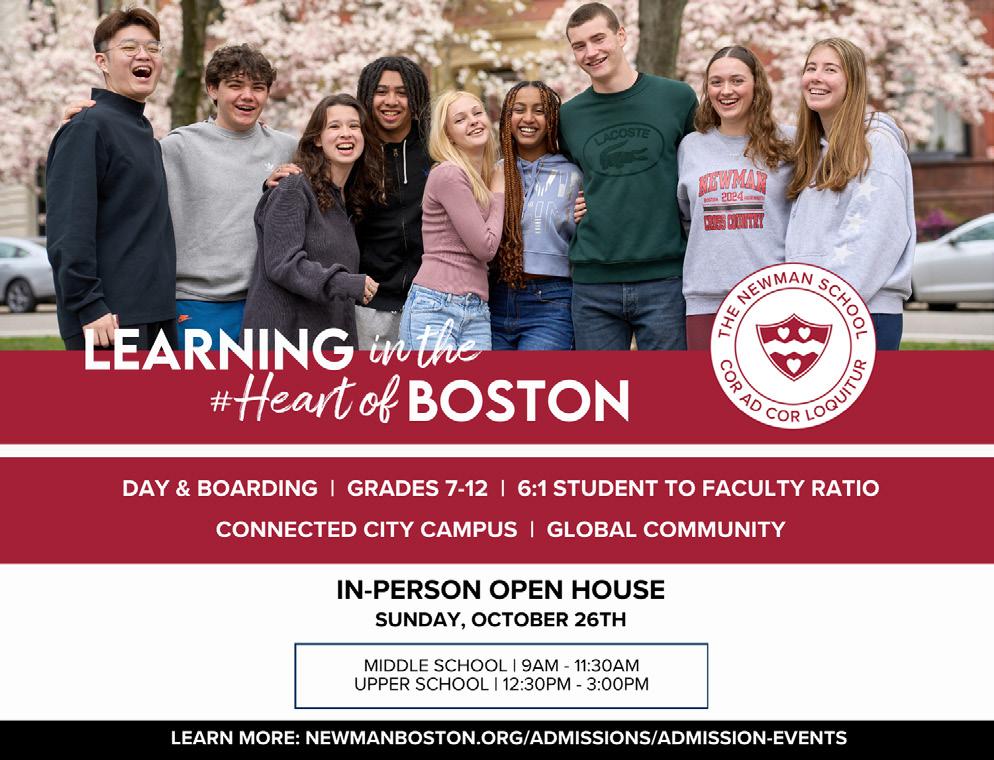

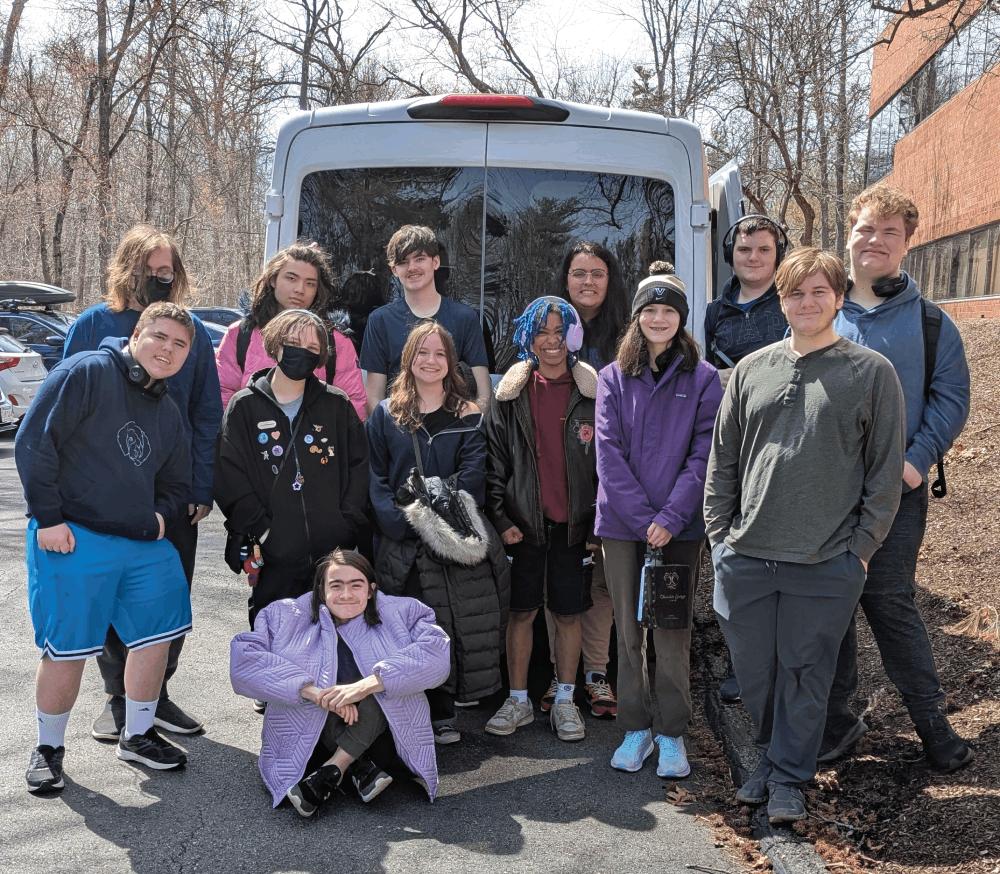
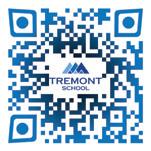
Wellan Montessori School 80 Crescent Avenue
Newton Centre • (617) 969-4488 www.wellan.org
Norwood Montessori School 462 Walpole Street
Norwood • (781) 762-3700 www.norwoodmontessorischool.com
Reading
Austin Preparatory School 101 Willow Street
Reading • (781) 944-4900 www.austinprep.org
Melmark New England 703 Technology Center Drive Stoughton • (781) 847-1446 www.melmark.org/newengland



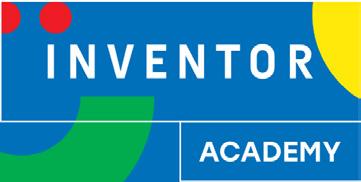

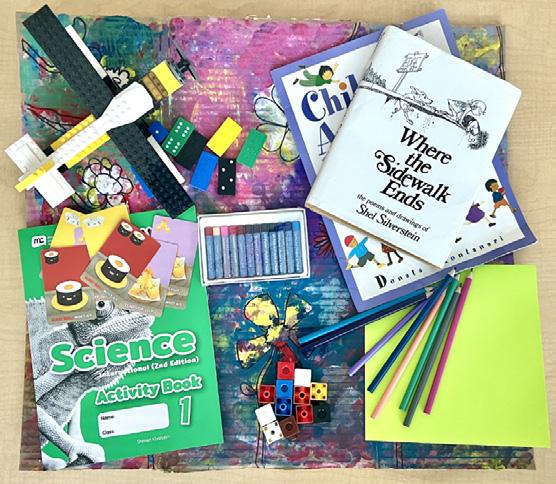

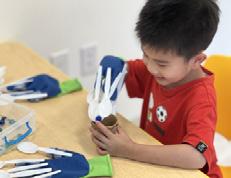
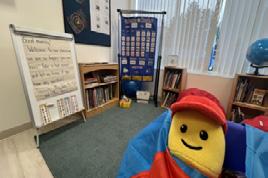
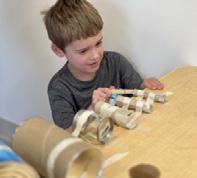
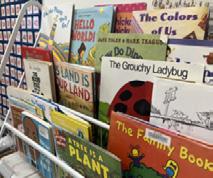

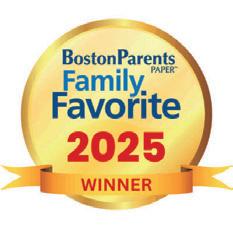
Corwin-Russell School at Broccoli Hall
142 North Road
Sudbury • (978) 369-1444 www.broccolihall.org
League School for Autism
300 Boston Providence Turnpike Walpole • (508) 850-3900 www.leagueschool.org
German International School Boston
Lower Campus (Preschool - Grade 3) 46 Belmont Street Watertown • (617) 783-2600 www.gisbos.org
Montessori Escuela Wayland 107 Concord Road Wayland • (508) 358-1064 www.montessoriescuela.com
Tenacre Country Day School
78 Benvenue Street
Wellesley • (781) 235-2282 www.tenacrecds.org
The Fessenden School
250 Waltham Street West Newton • (617) 630-2300 www.fessenden.org
Holy Name Parish School
535 West Roxbury Parkway West Roxbury • (617) 325-9338 www.holynameparishschool.org
Wilbraham
Wilbraham & Monson Academy 423 Main Street
Wilbraham • (413) 596-9107 www.wma.us
Winchester
Acera School
5 Lowell Avenue
Winchester • (781) 729-3489 www.aceraschool.org
Worcester
Bancroft School
110 Shore Drive
Worcester • (508) 853-2640 www.bancroftschool.org
French, German, Welsh, Mandarin and Japanese $69,000 - $69,500 MAAPS and DESE accredited. AANE, AISNE
AISNE, DAS, MINT, Official German School Abroad (internationally recognized high school diploma)

Riverview School is an independent boarding and day school on Cape Cod for students ages 11–22 with complex language and learning challenges.
Abilities-first approach: The understanding that every student is unique; meeting students where they are helps us prioritize individual strengths and focus on nurturing the whole student.
Comprehensive growth: Committed to supporting student development across all areas—academic success, vocational readiness, independent living skills, social-emotional learning, and overall wellness.
Supportive environment: Students thrive in a structured and predictable setting, surrounded by peers who share similar experiences and challenges, fostering a sense of belonging and community.
Small class sizes: 8:1 studentto-teacher ratio for personalized learning.

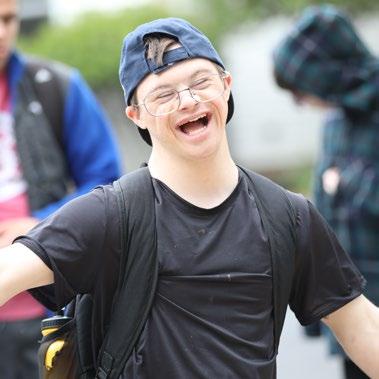
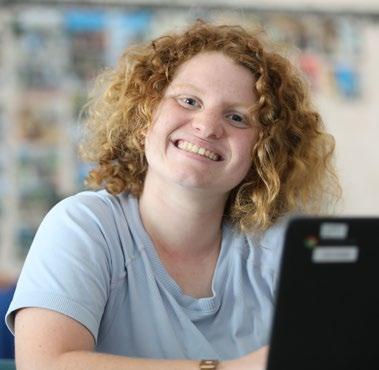
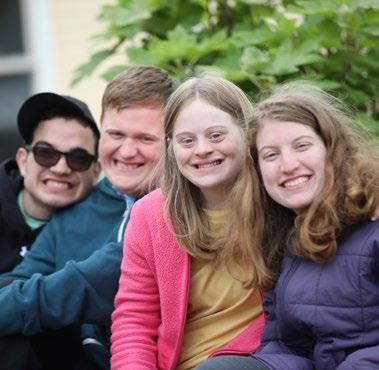
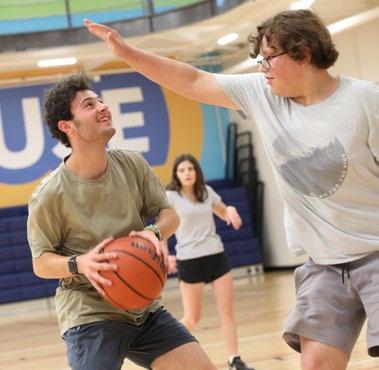

By Jan Pierce
Our children have had a rough several years of learning due to the pandemic and now it’s time to re-focus on classroom interactions. Some younger children haven’t had time to experience the way a classroom normally works. How do they behave in a large group? What if they need help? What if they make a mistake? How responsive will the teacher be to individual needs? Parents can help children take optimal advantage of their learning environment by teaching some basic learning skills. Your child doesn’t have to be top of the class to enjoy learning and be a thriving, healthy part of his or her classroom.
Here are some tips to help your child be a proactive, happy learner:
Teachers notice when children come to school prepared to learn. They have the right supplies; they’ve eaten breakfast and have had enough sleep. They brought back the permission slip for the field trip and they have their lunch money.
Yes, it’s a lot of work for parents to keep up with all the activities at school. And at some point children need to take responsibility for those things themselves, but not yet. Not when they’re in grade school and are just learning how to manage responsibilities. Be the parent who takes care of business and put your child in the best position to receive approval from the folks at school.
The best student in the world can’t be on high listening alert all day long. But successful students know when to listen carefully and that is one of the most important skills a student can learn. You can explain to your child that it’s vital to listen carefully when a teacher is giving exit directions before independent work times. These times
usually come when the entire class is gathered and a new subject is introduced. Just before the children move to work independently the explicit directions are given. Good teachers usually leave written directions where students can refer to them as they work.
Practice listening skills with your children. When are the times you need them to listen and remember? Help them see the difference between casual listening and focused listening when they need to act on the directions given.
It may seem easy to adults, but children often don’t know how to follow directions. Most directions are sequential: “Get your paper, write your name at the top, then do problems one through ten.” For some children all the words get jumbled up and they fail to do the first thing correctly. You can practice following directions at home and teach coping skills if the child forgets. Listening and following directions are key skills in learning and the earlier children can perform in these areas, the better they’ll do on classroom assignments.
Continued next page >>>


Play a game in which you give two directions: “Go to the door and tap on it three times, then stand by the coffee table.” When the child can do two directions correctly try for three. Keep adding until a mistake is made. Children can become quite adept at following directions using this method.
Here is a typical conversation in a first grade classroom: Teacher: Does anyone have any questions before we start our work? Student: “My hamster had babies last night.” This little interchange may bring smiles to adult’s faces, but it highlights the fact that many children don’t know the difference between statements and questions. And, they don’t understand the difference between appropriate questions and those that are off-task. Asking questions at the appropriate time and about the topic at hand is absolutely one of the most important skills a learner can master. It’s good to ask questions when we need information or clarification. It’s smart to ask good questions. But a child

Success
in
the classroom is more than achieving high marks on assignments. Just as in all of life, being a responsible, kind and caring person is just as important as being the best at what we do.
who hasn’t really mastered the art of asking will be lost, and without the information they need to do a good job.
Practice asking clear, concise questions. “I understand how to write complete sentences using these words, but I don’t understand how you want me to change the action words. Vague questions like “How do I do this?” or statements like “I don’t get it.” leave the teacher wondering where to begin. Say to your child, “What, exactly do you need? And then prompt until the question is clear.
Not every child will earn straight A’s. Yes, there are average students in every classroom. And that’s okay if the child is working to his or her potential. But some children seem more adept at building relationships and maintaining friendships than others. This is the child who notices when a friend is sad or needs to borrow a pencil. This is the child who shares with others and takes turns. He plays fair. She notices when a friend needs encouragement.
Don’t underestimate the value of social skills when it comes to success in the classroom. Your child may not solve every math problem correctly, but if he is a good friend and a kind, caring person, you’ve got a lot to be proud of and the classroom is enriched. Help your child notice when others seem sad. Guide them to ways to help or share or show they care.
Practice: “Did you notice that Katie seemed sad today? I wonder if we could do something to cheer her up?” Or, “I like the way you shared your Legos with your friends. Being a good friend is really important in our family.” Success in the classroom is more than achieving high marks on assignments. Just as in all of life, being a responsible, kind and caring person is just as important as being the best at what we do. Give your kids a boost by teaching them to master good classroom skills and watch them soar. Y
Jan Pierce, M.Ed., is a retired teacher and the author of Homegrown Readers and Homegrown Family Fun. Find Jan at www.janpierce.net

The journey following an autism diagnosis can be overwhelming. With 1 in 31 children now affected, you're not alone. May Institute is here to help.
For over 70 years, May has been a leader in autism care. From our May Centers for Children & Families serving young children to our specialized schools for elementary through high school students across Greater Boston, we provide compassionate, evidence-based care to equip your child with the skills they need for a fulfilling life.

or call
and schedule